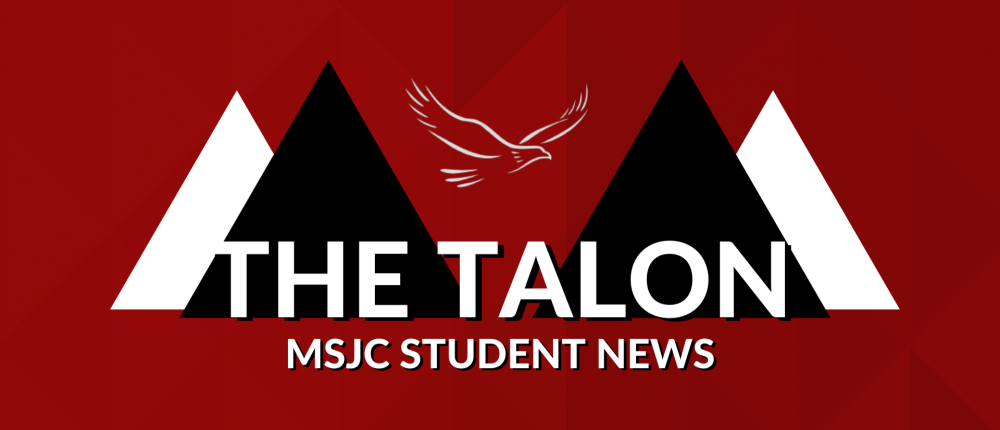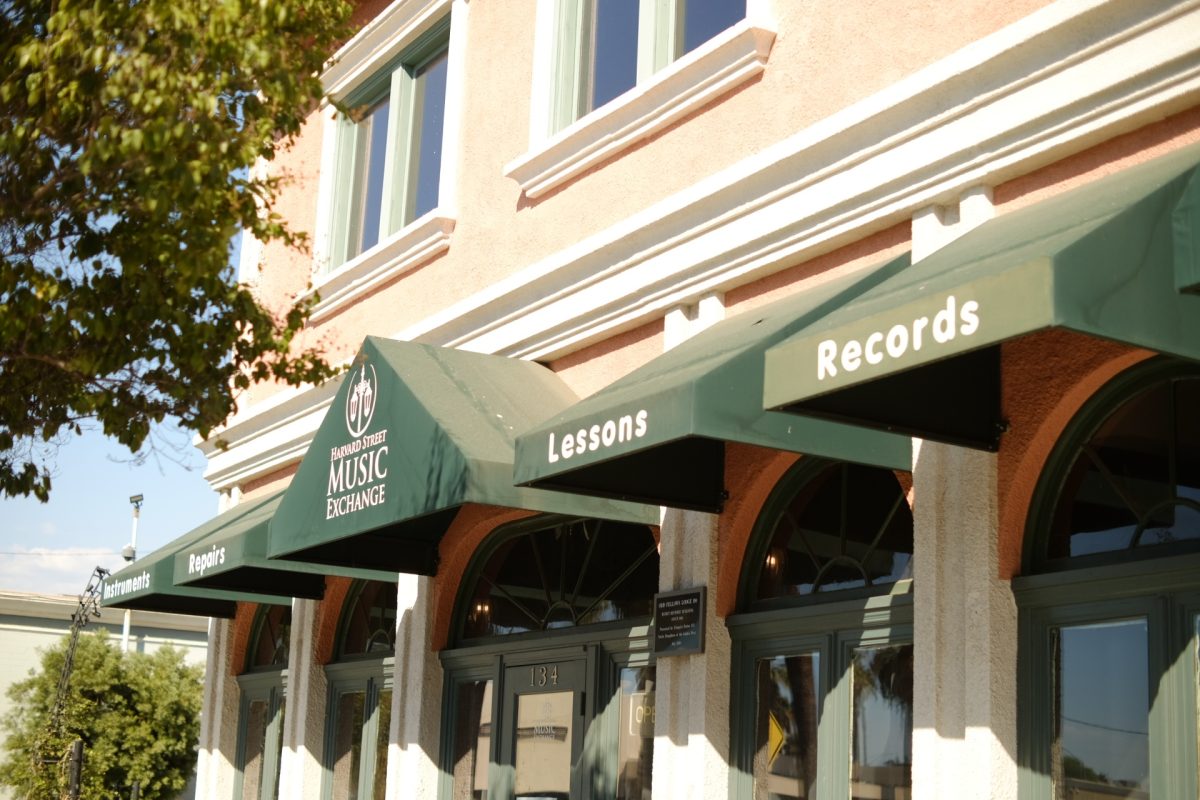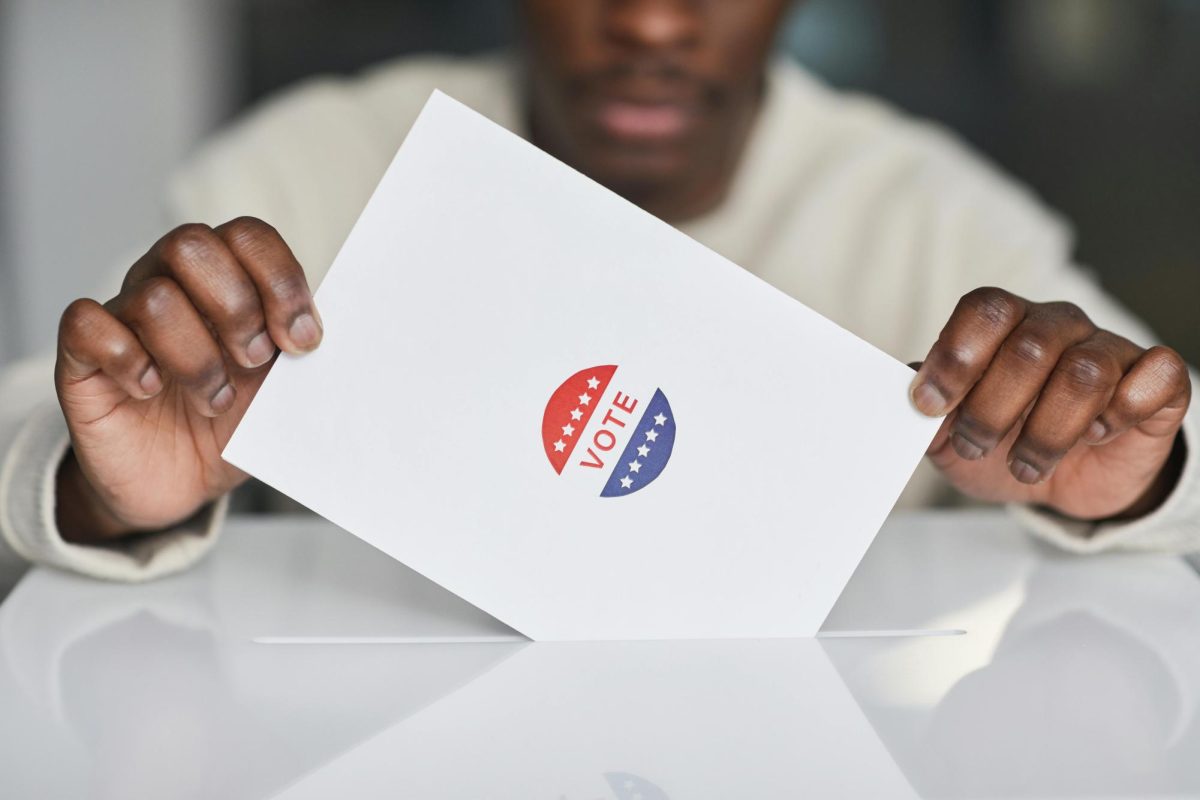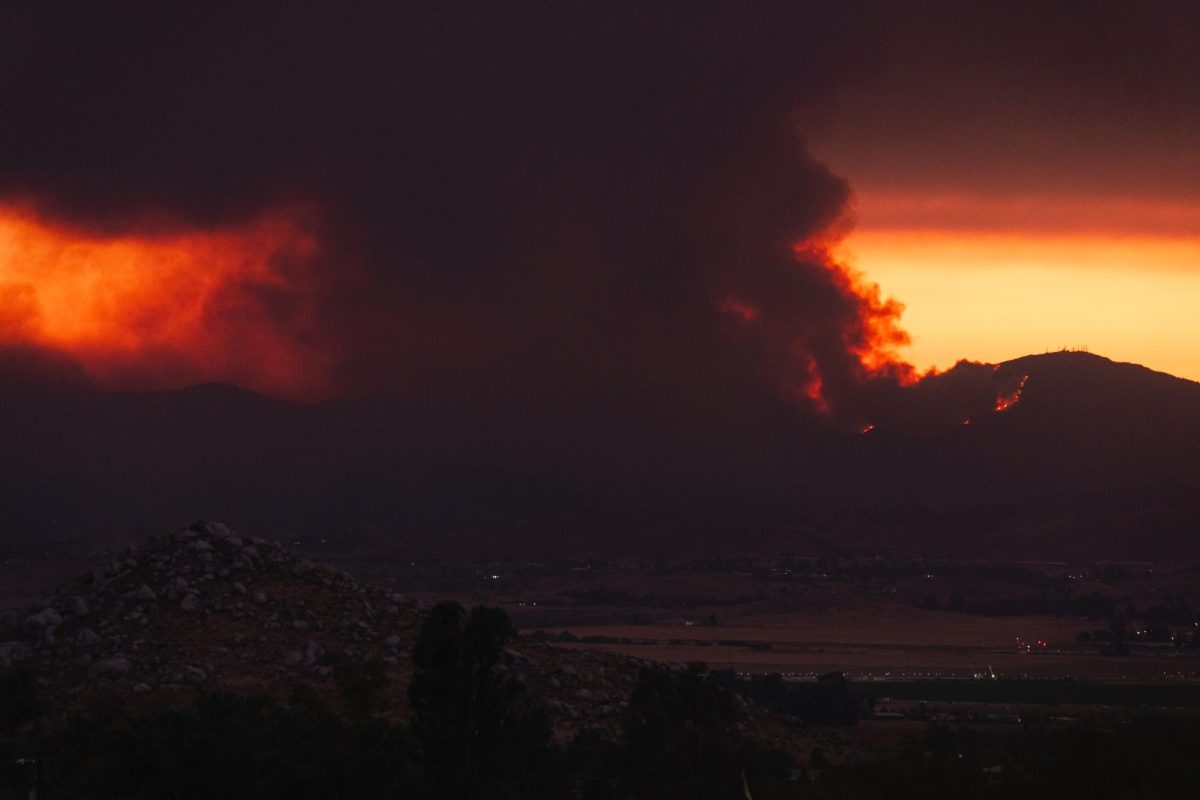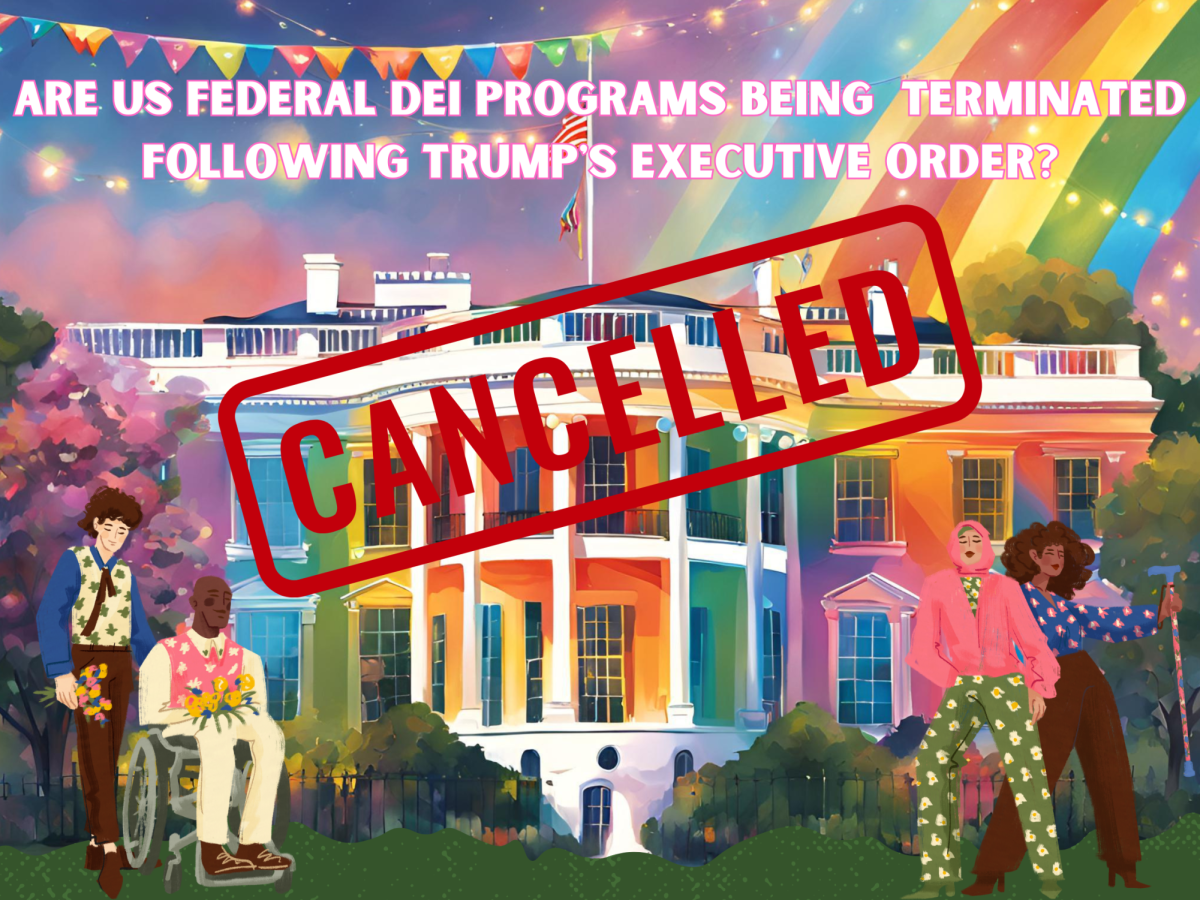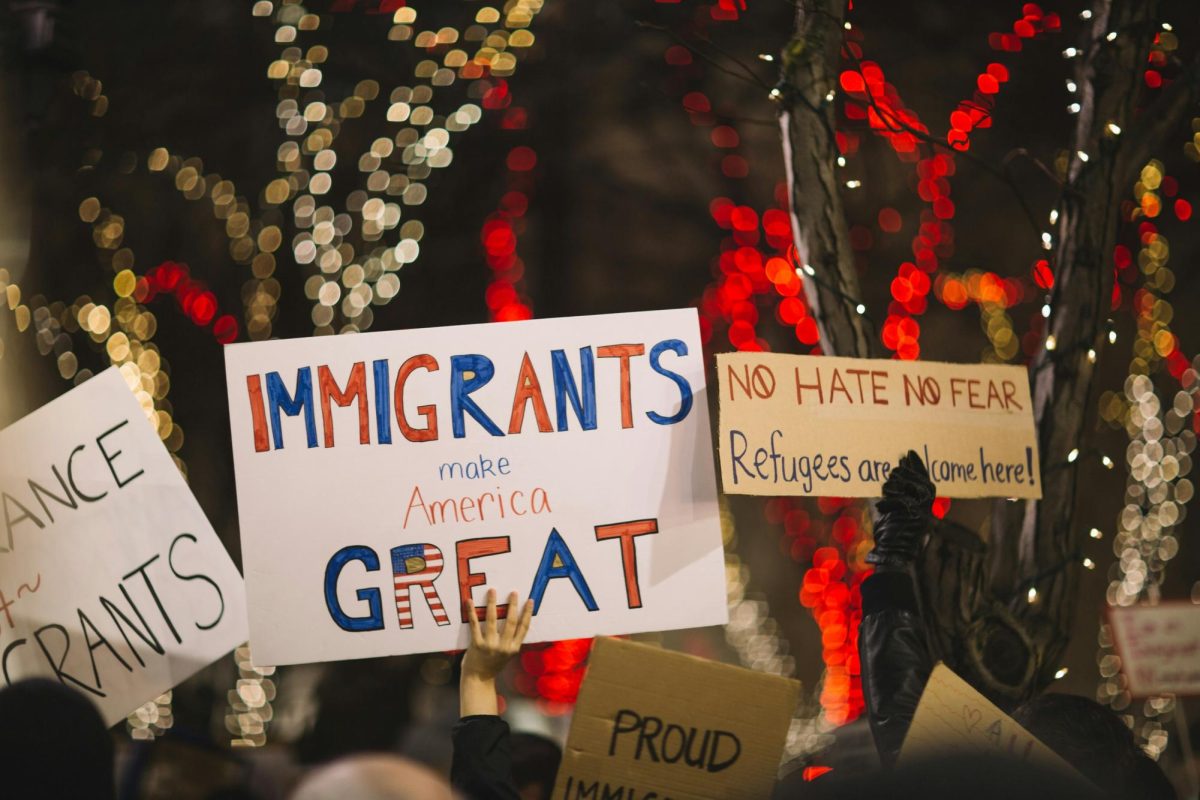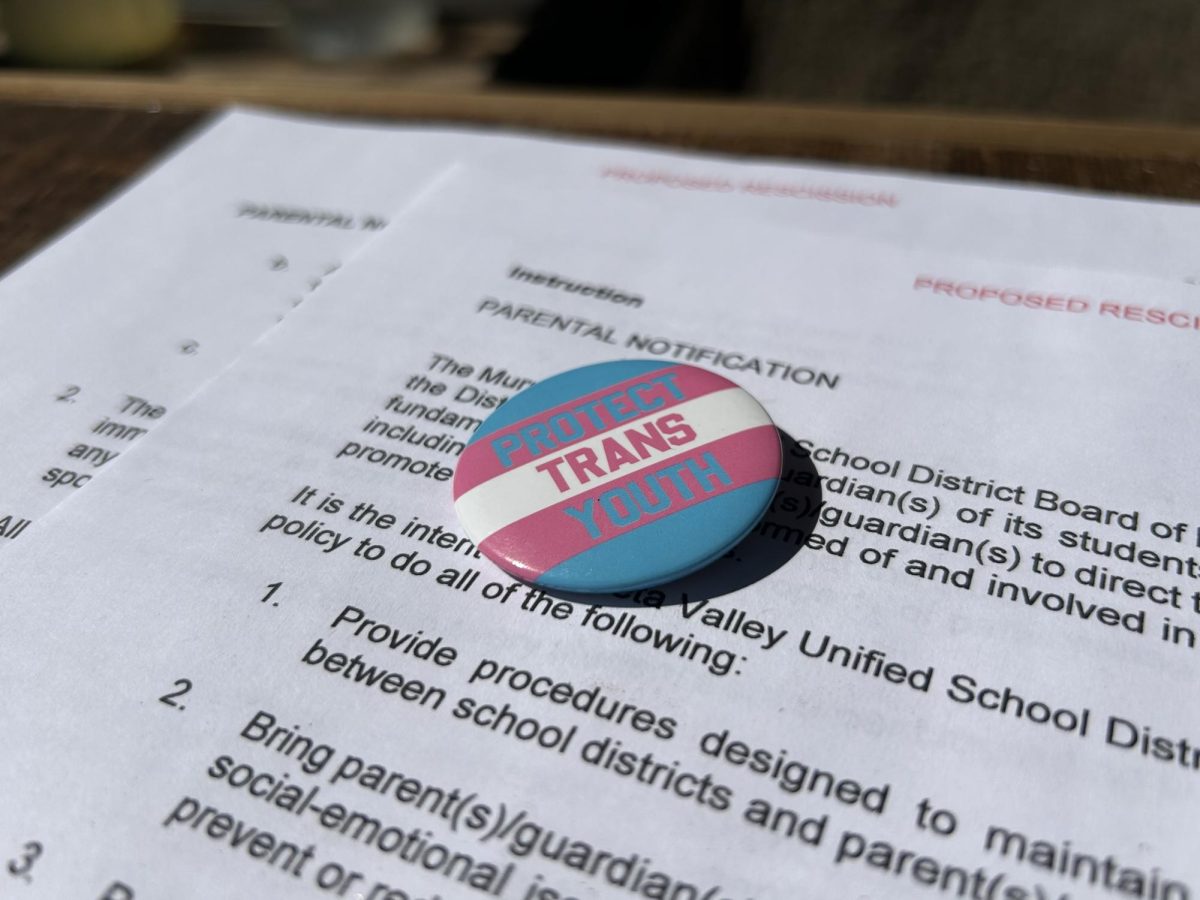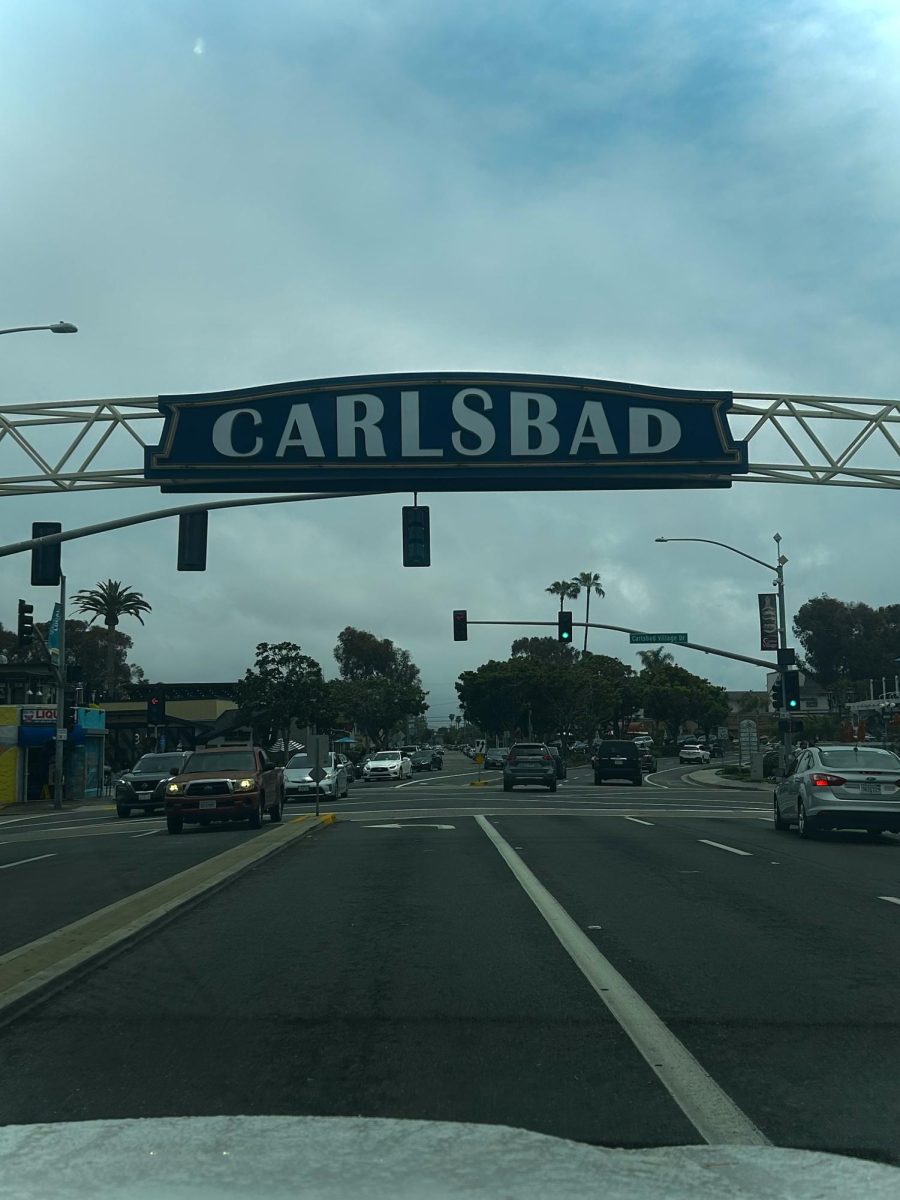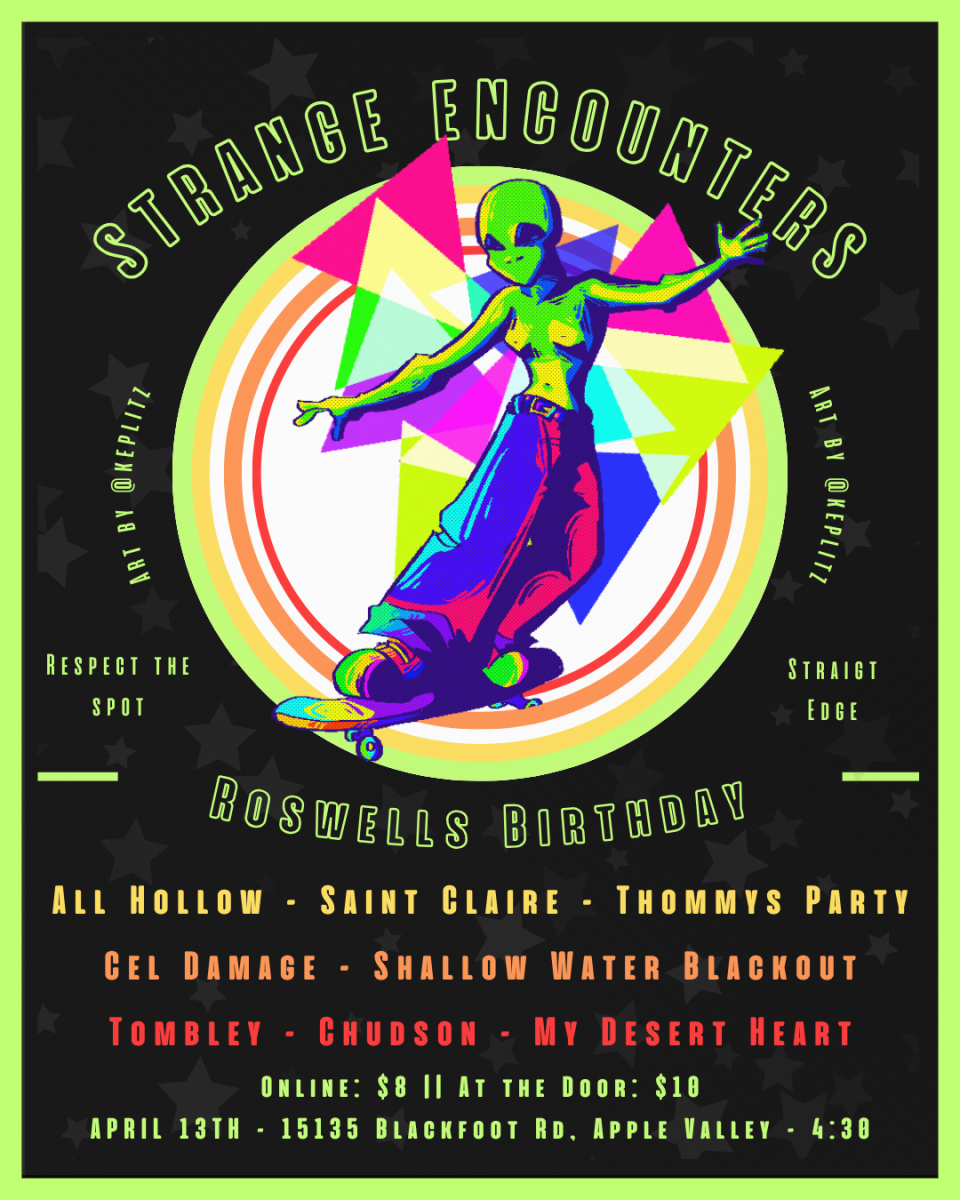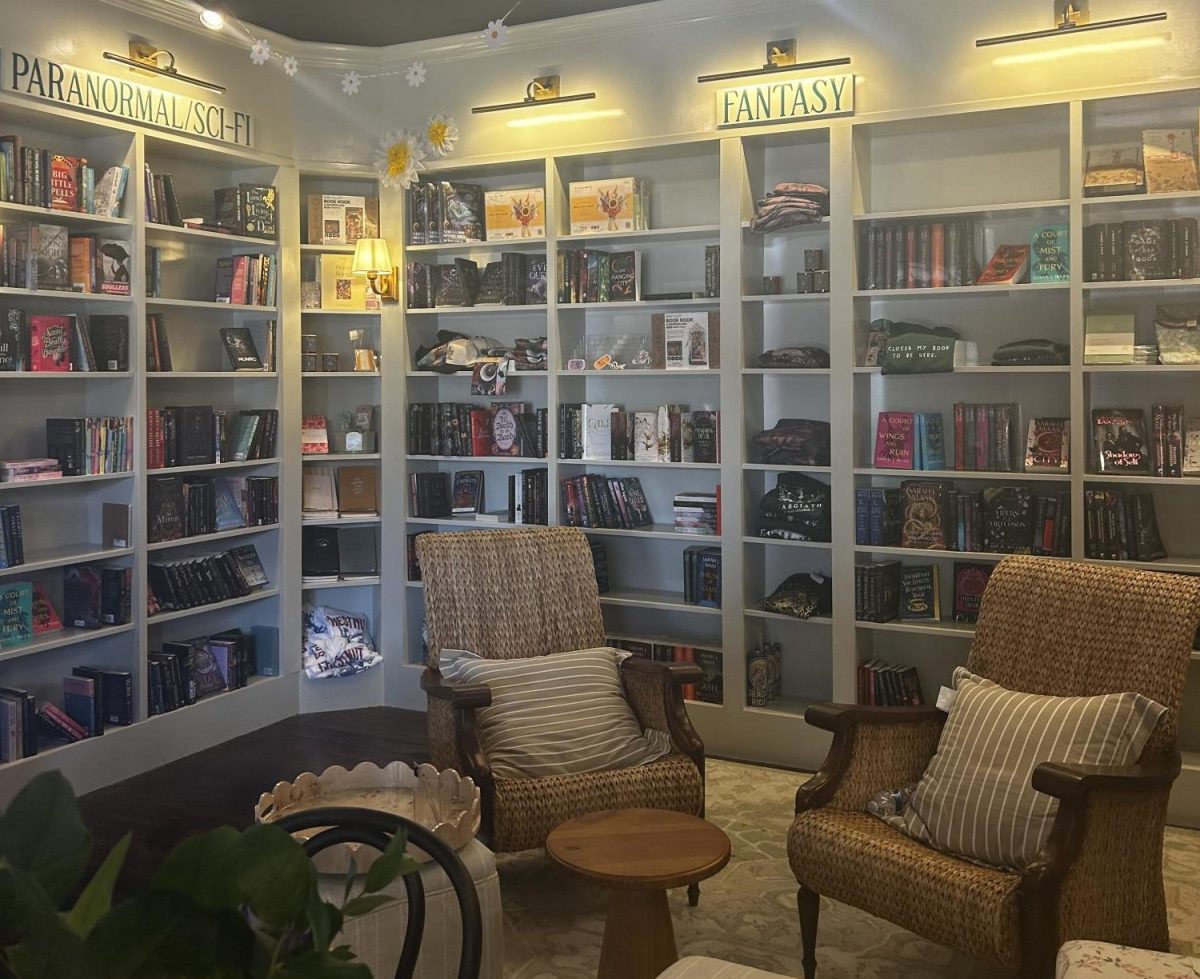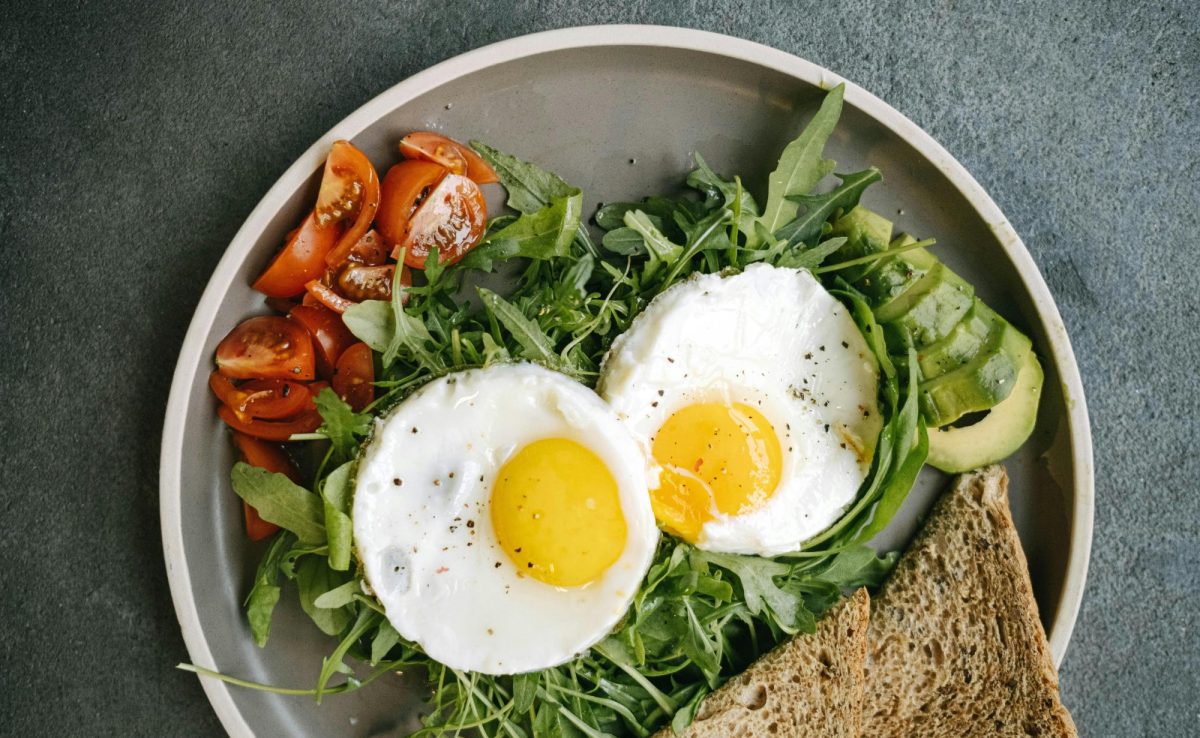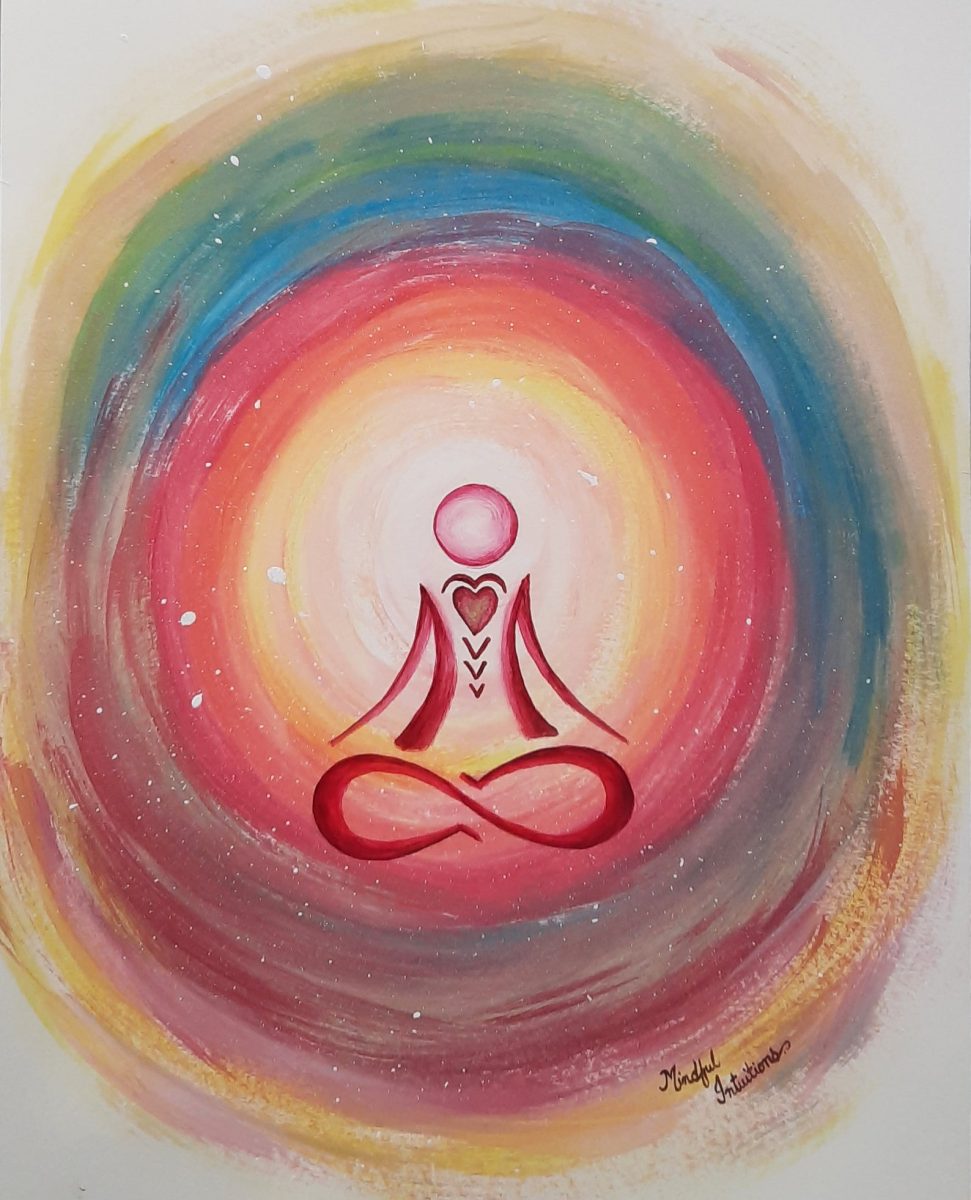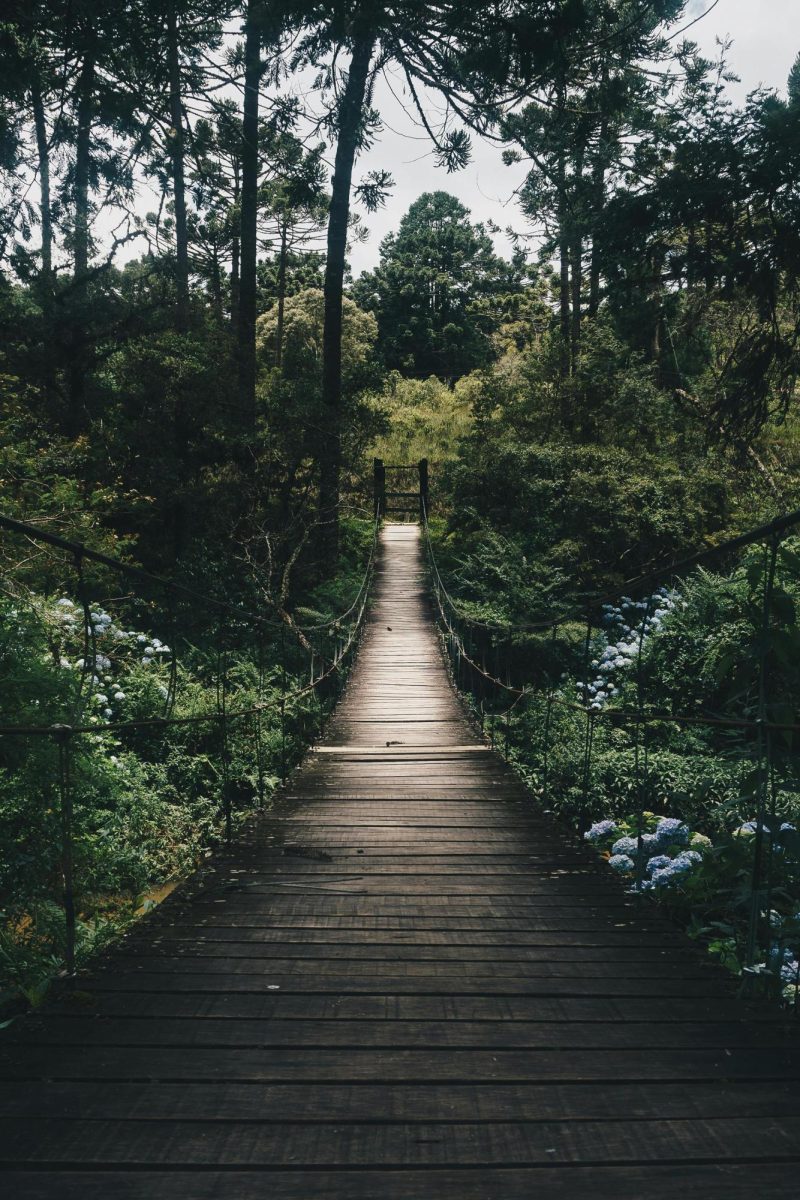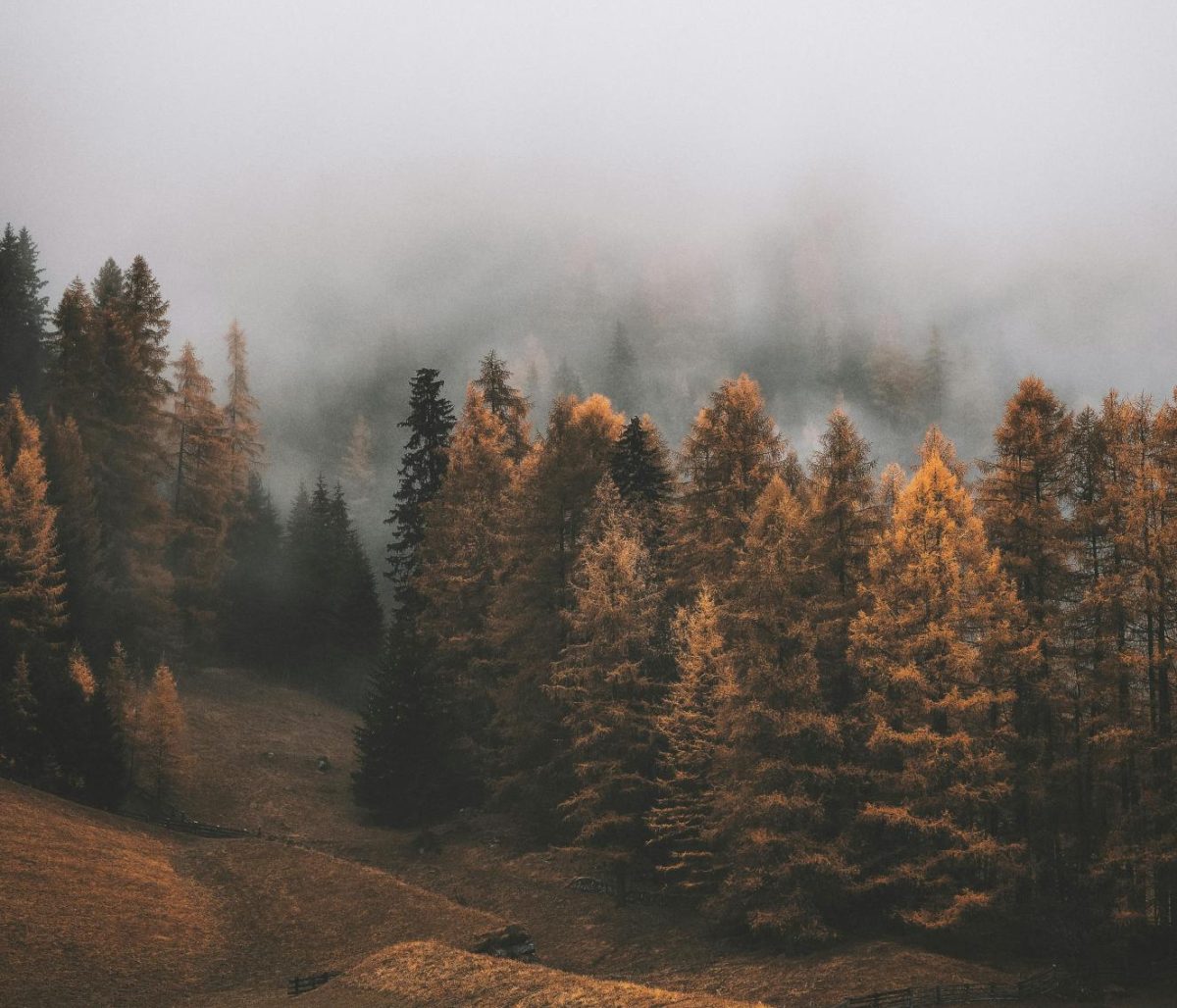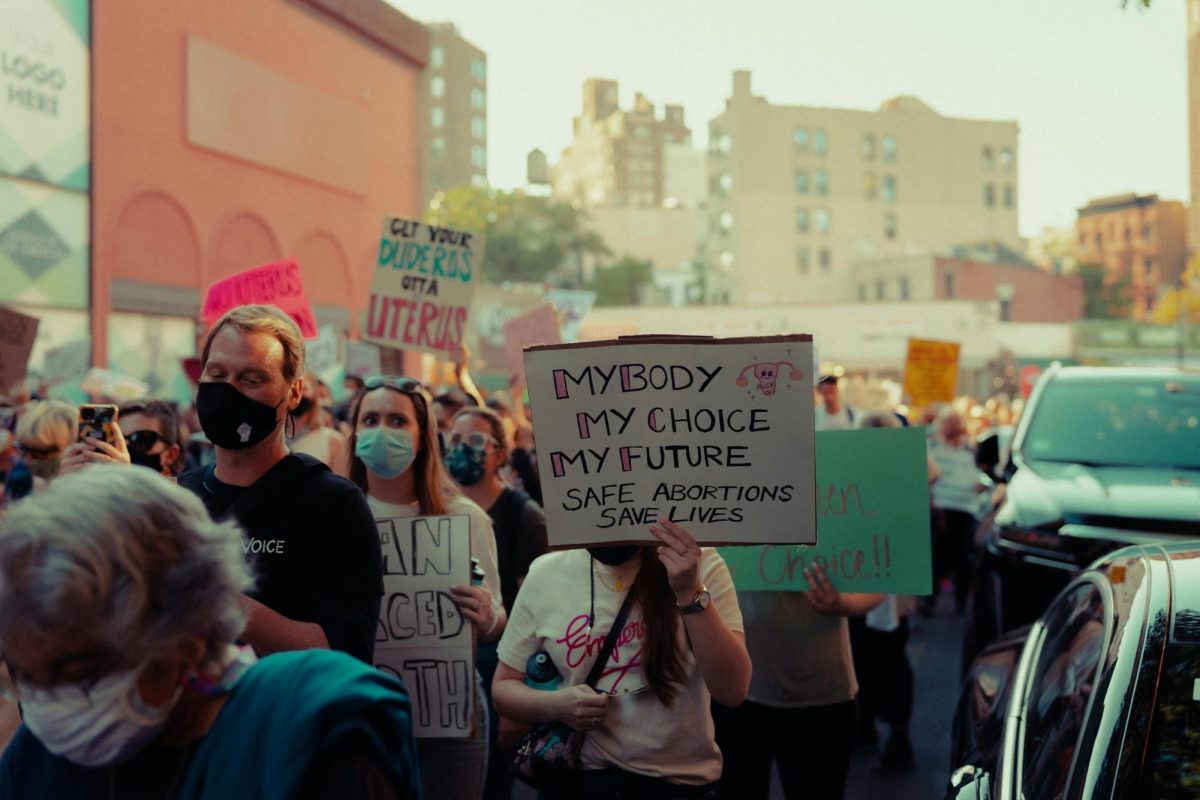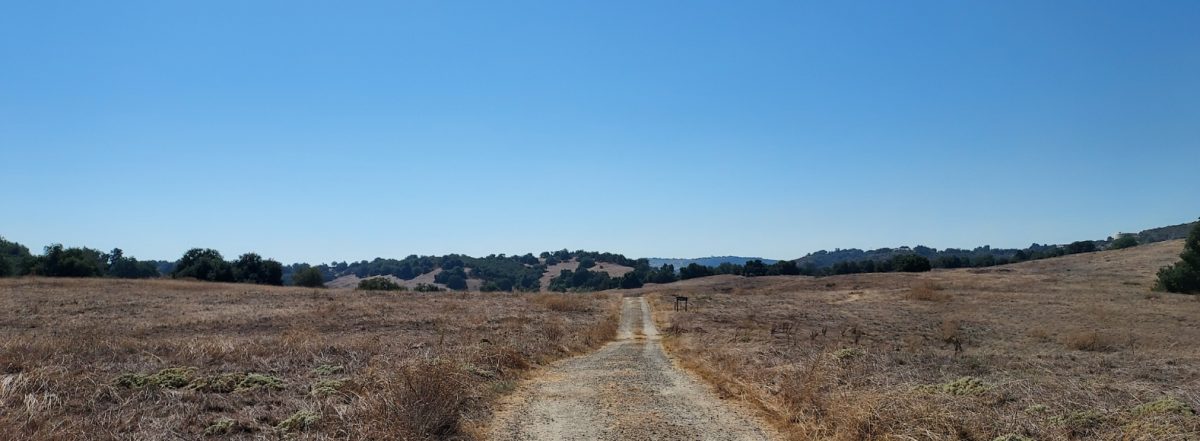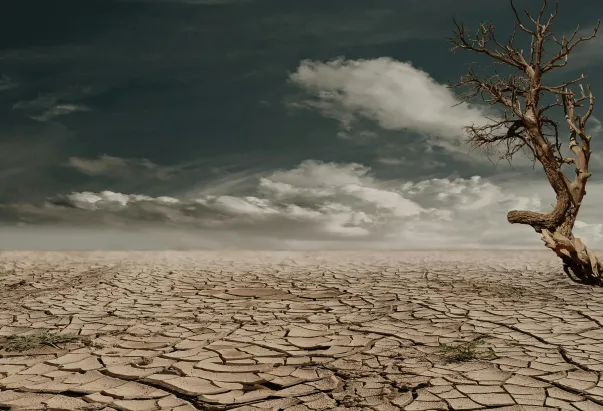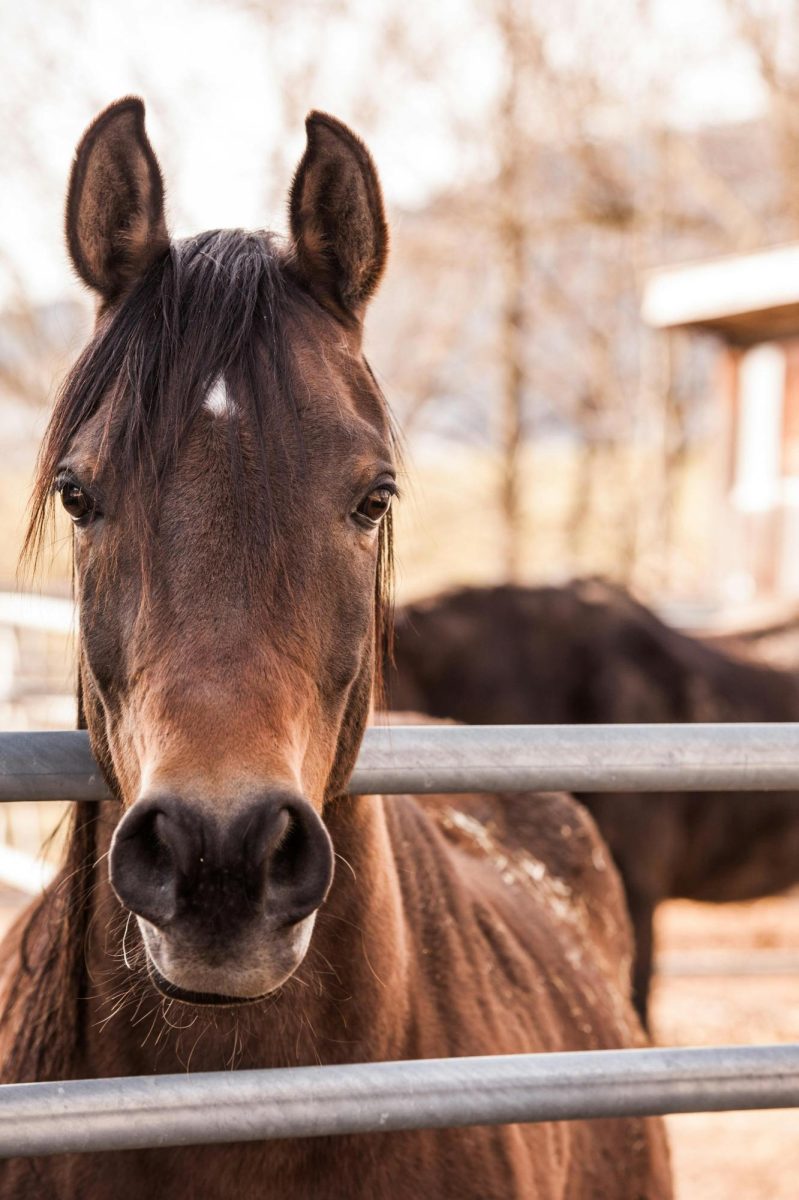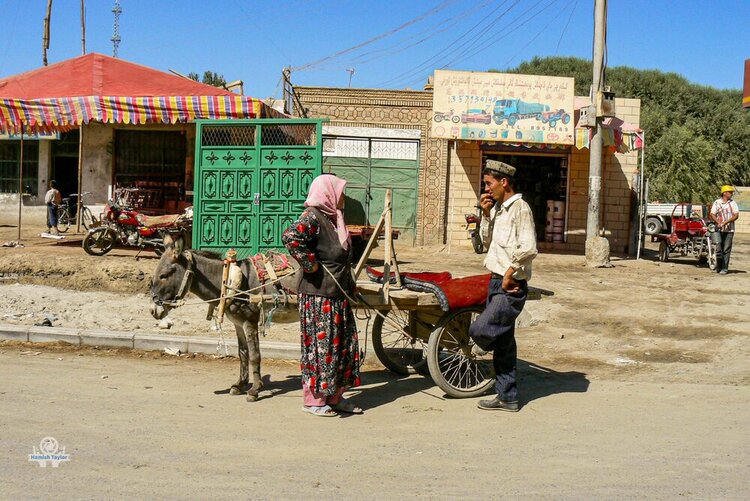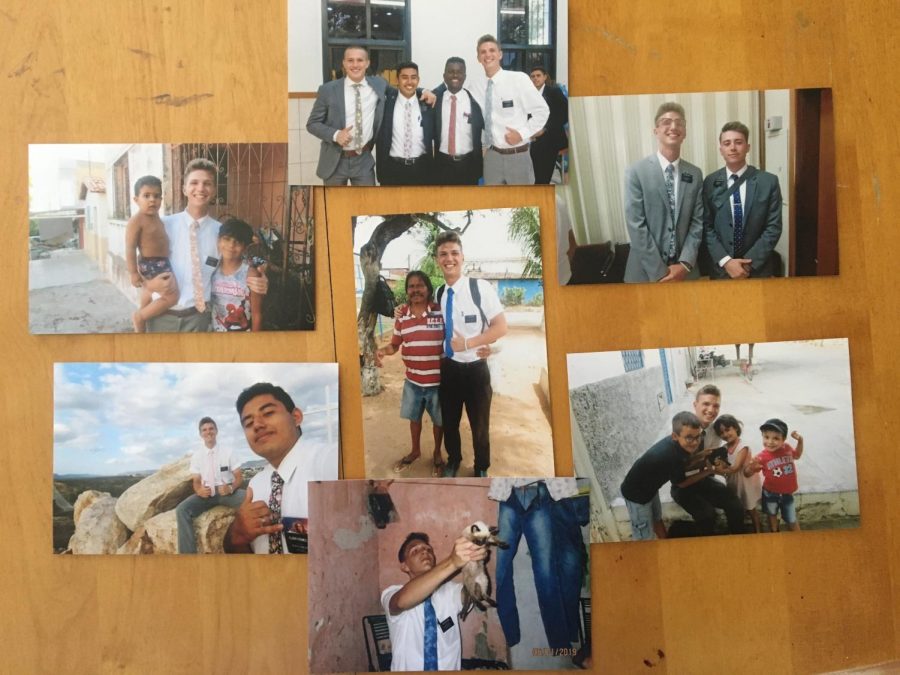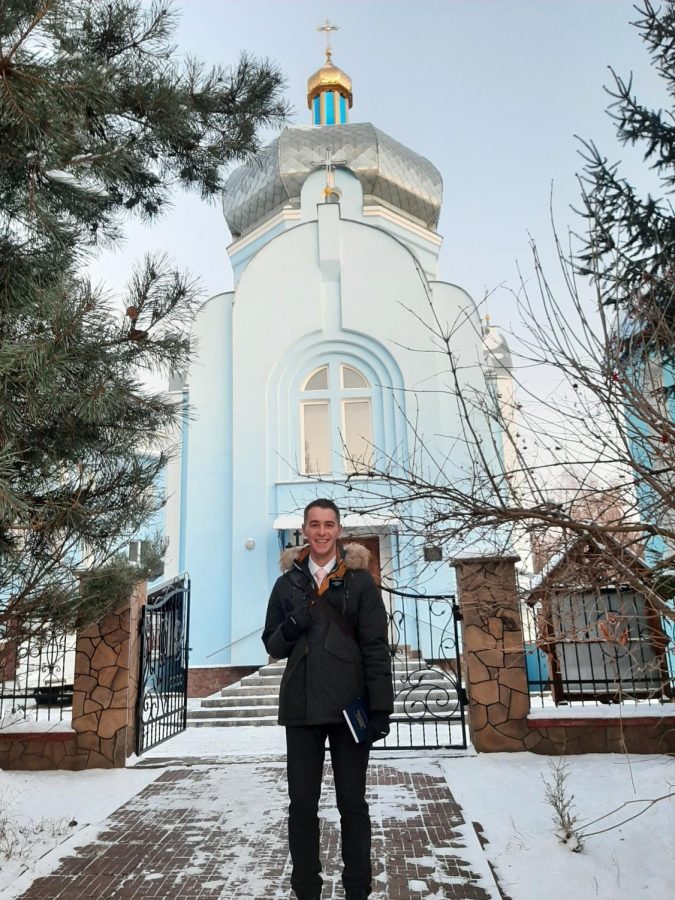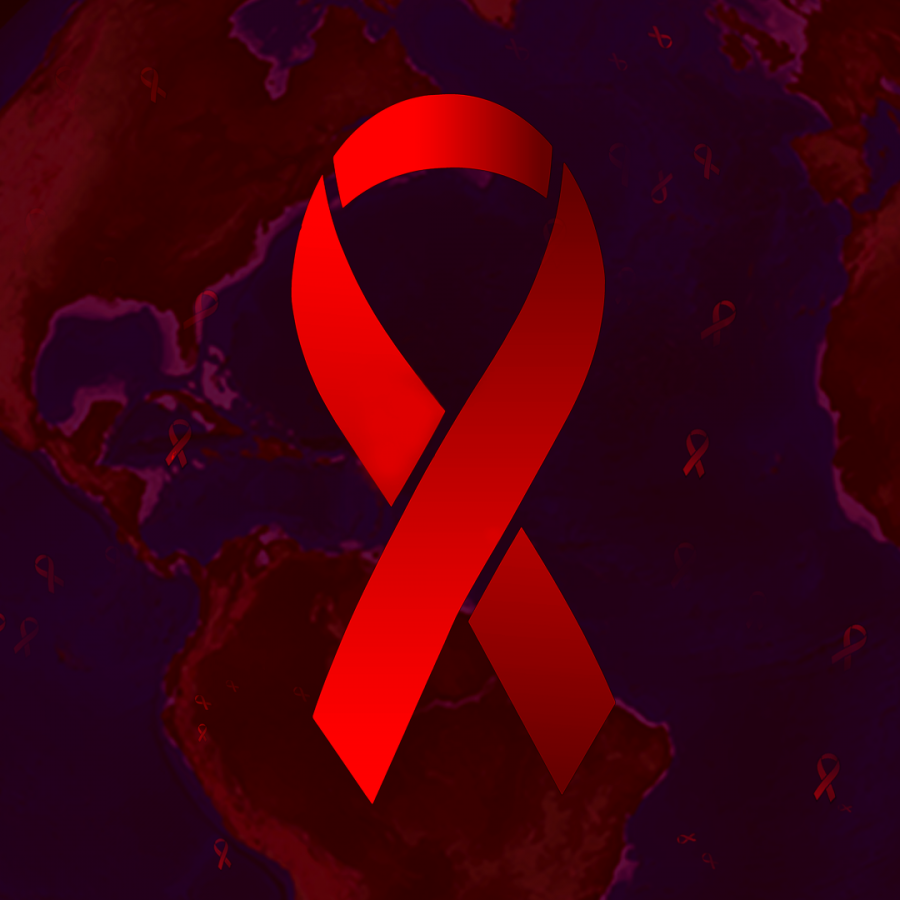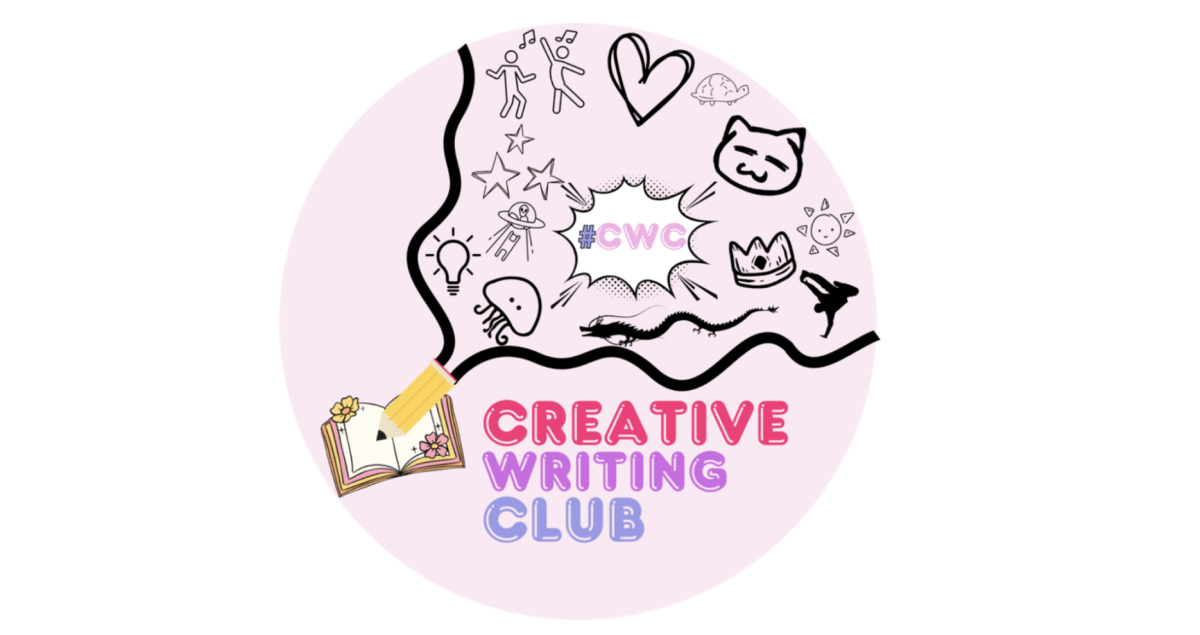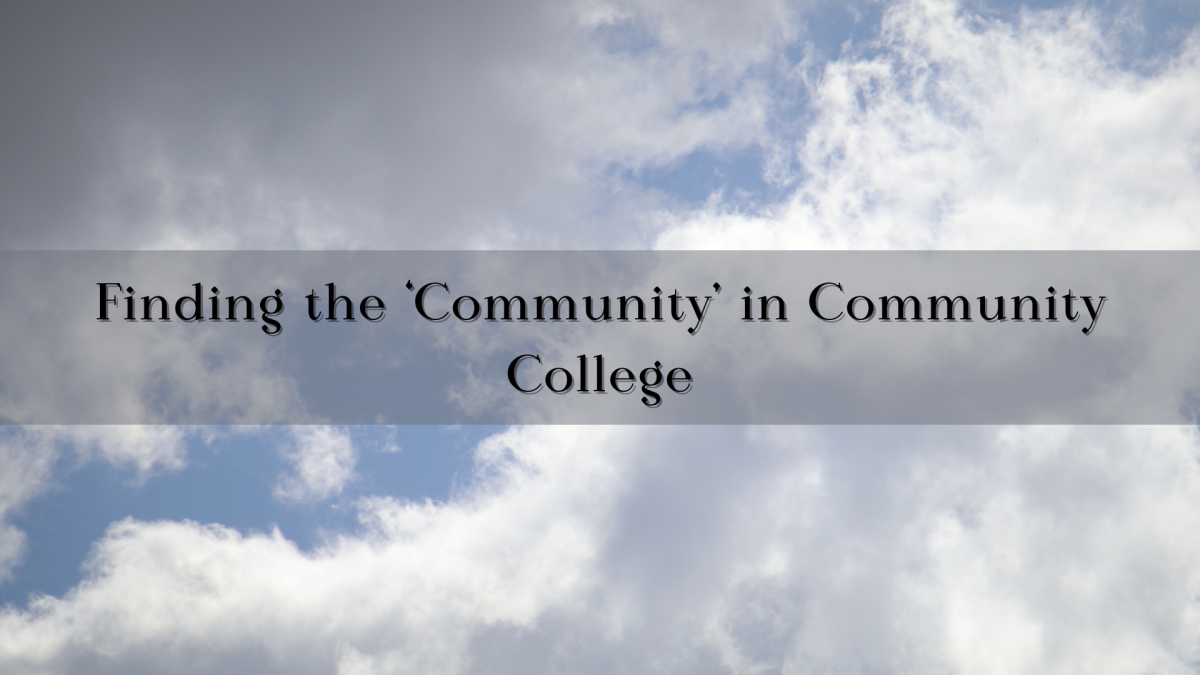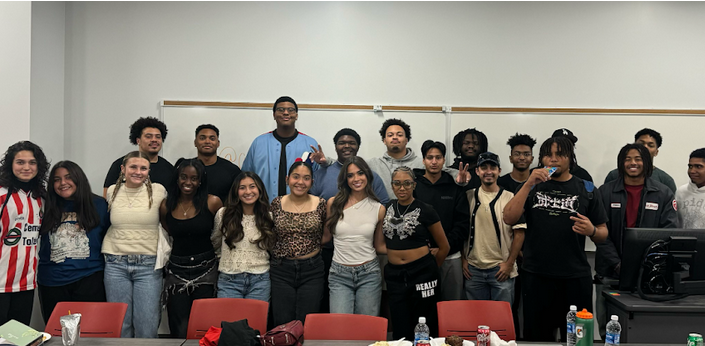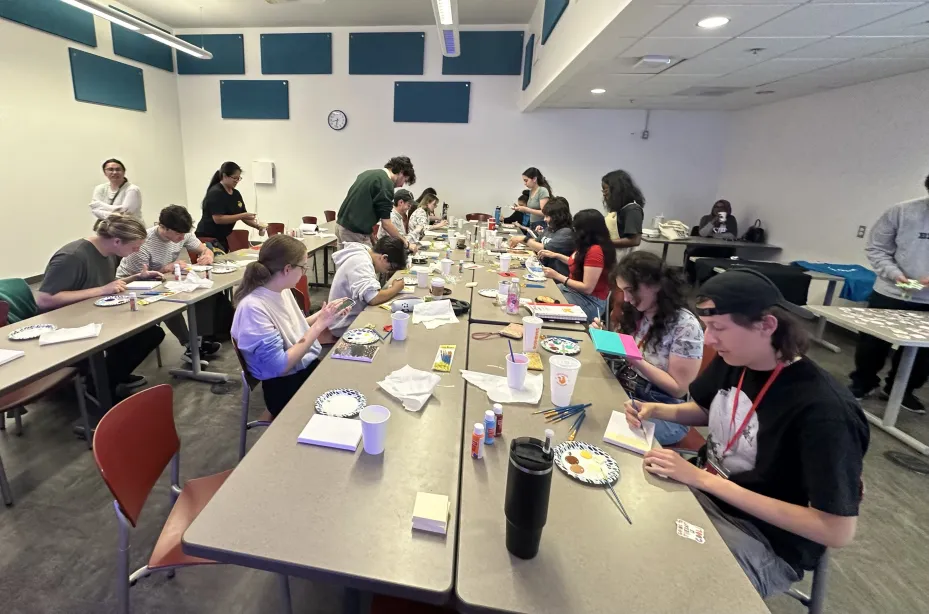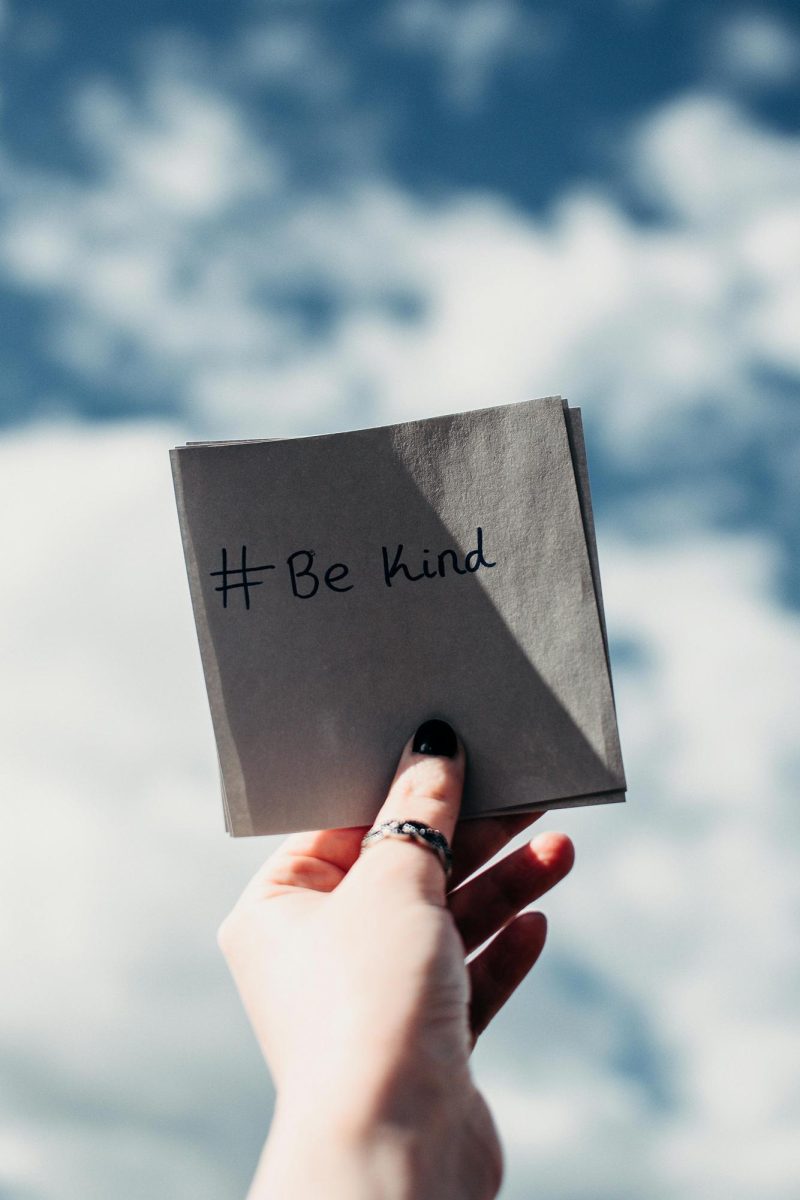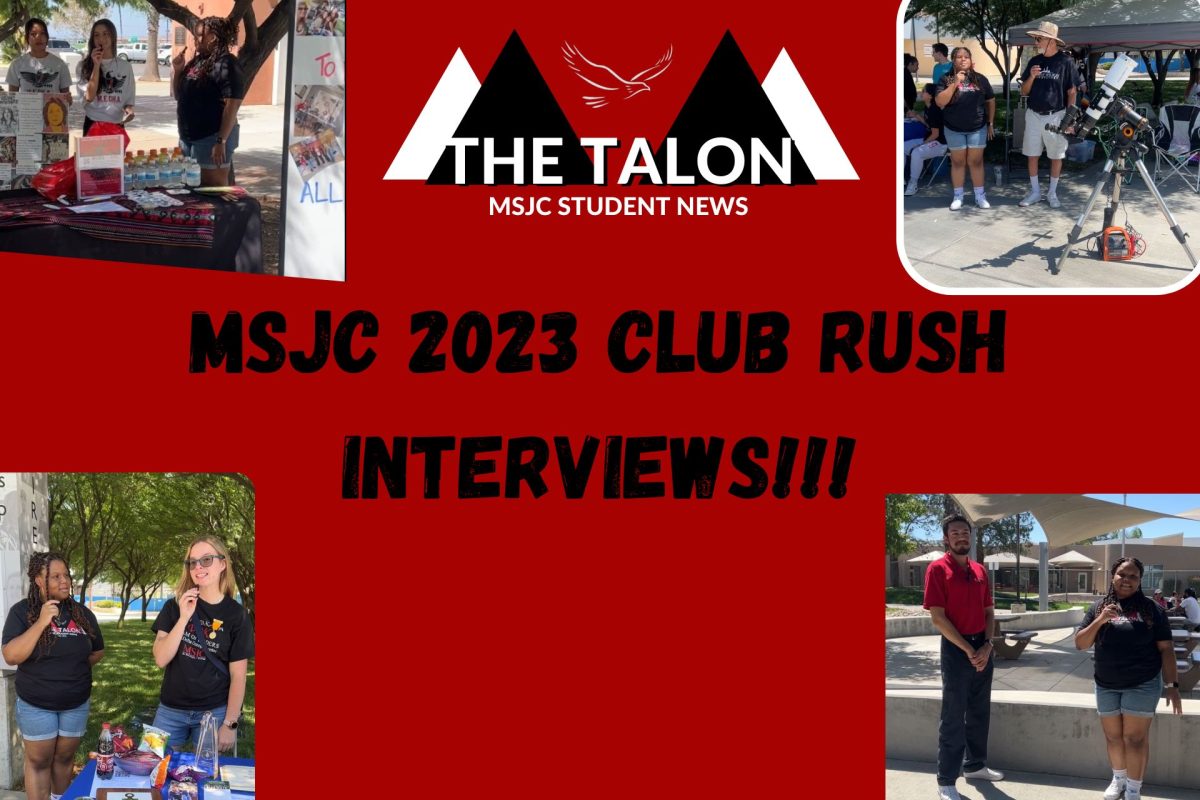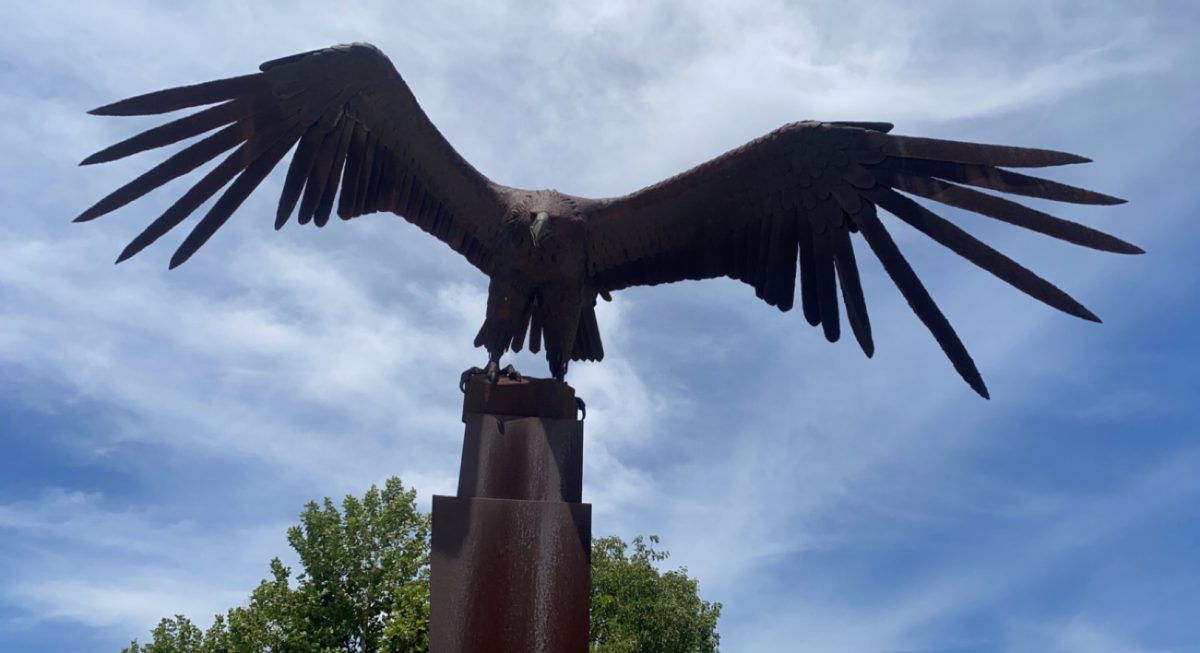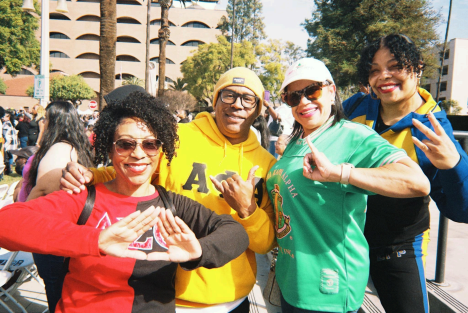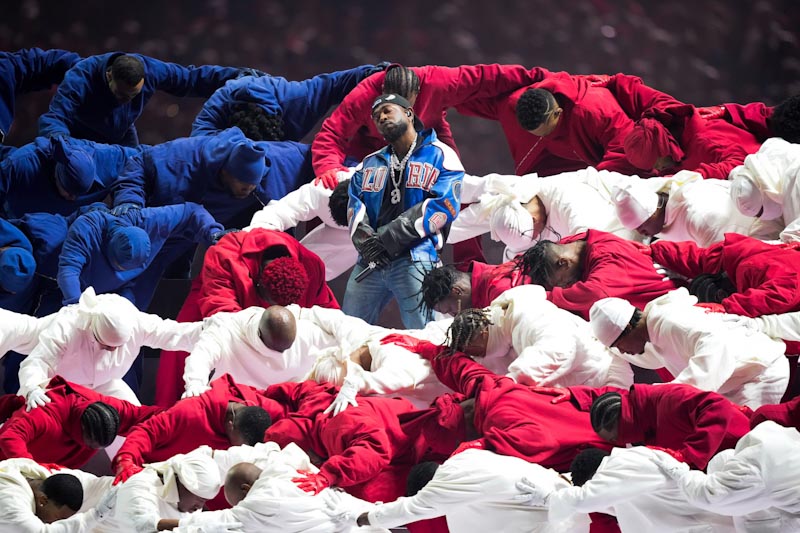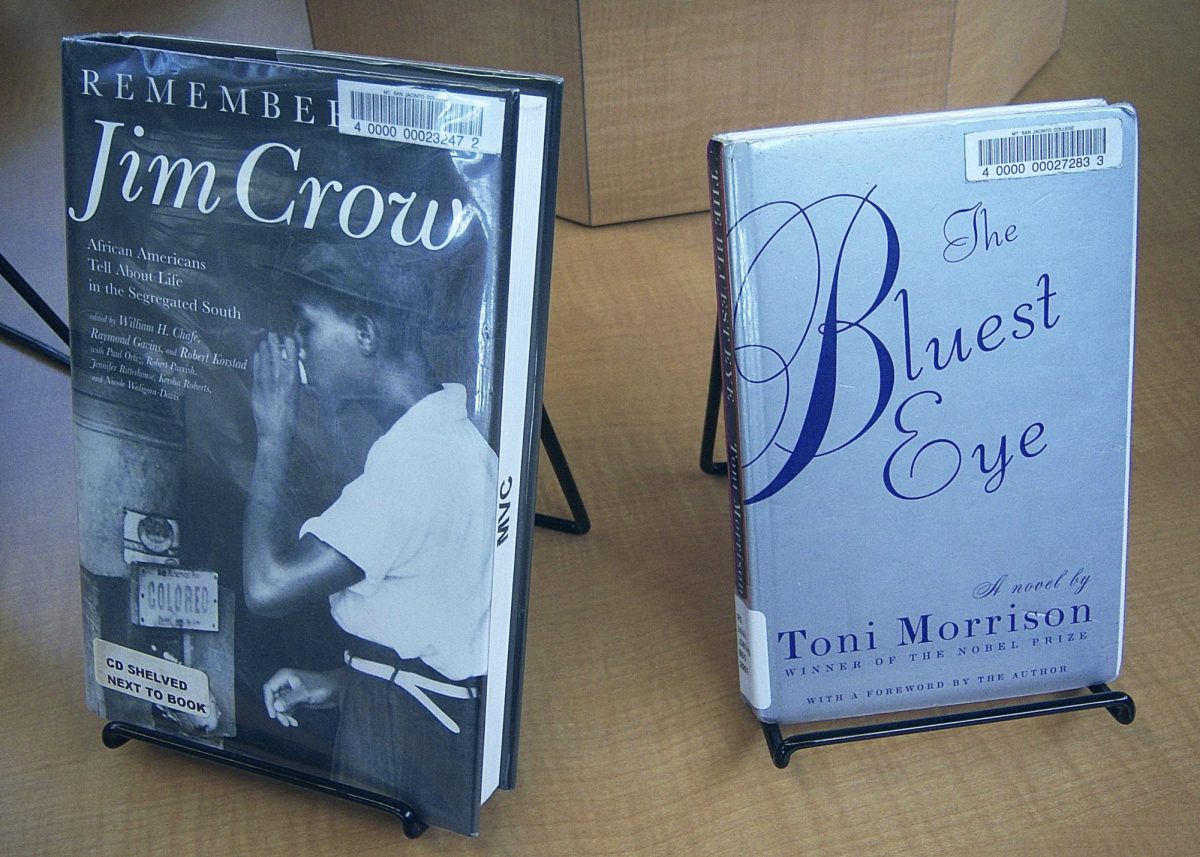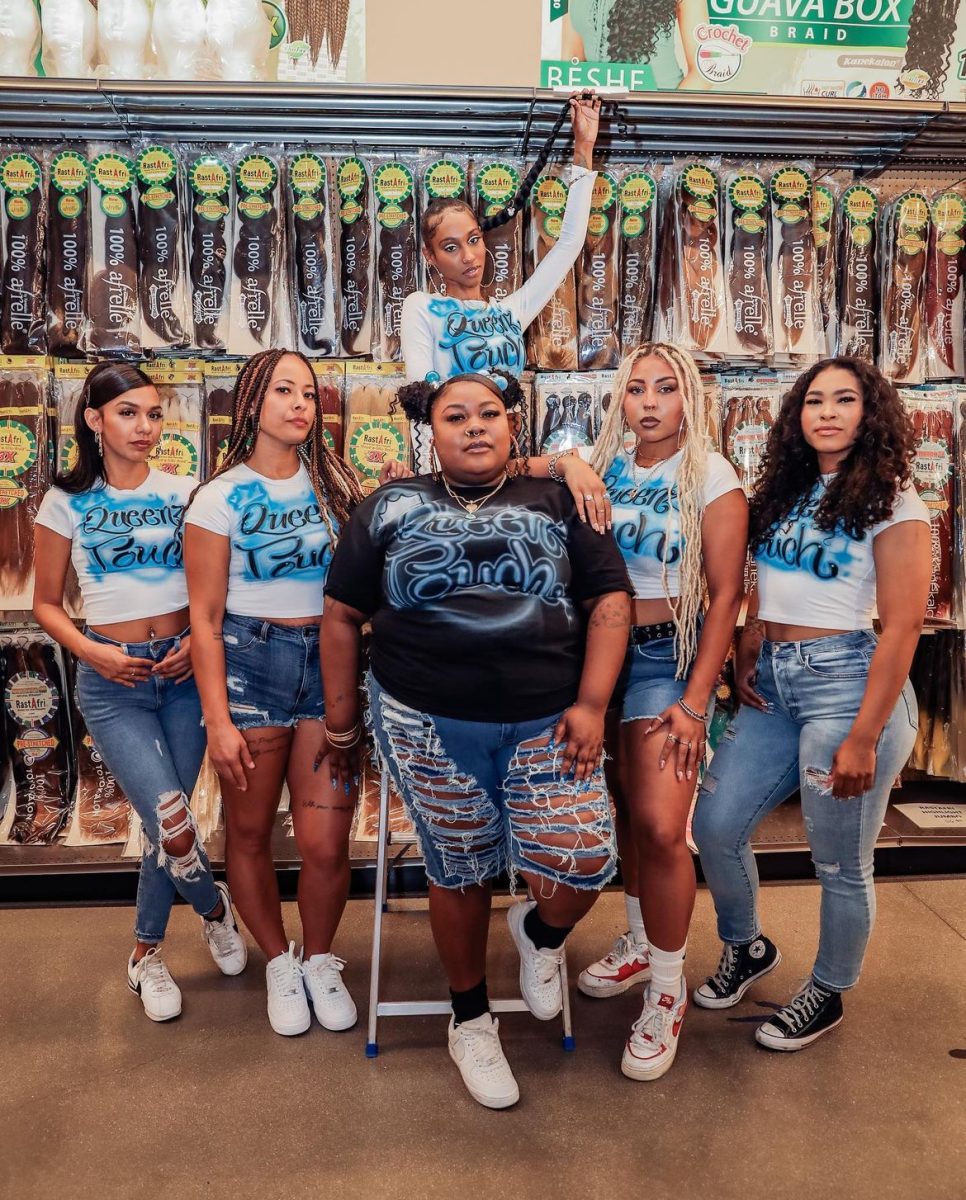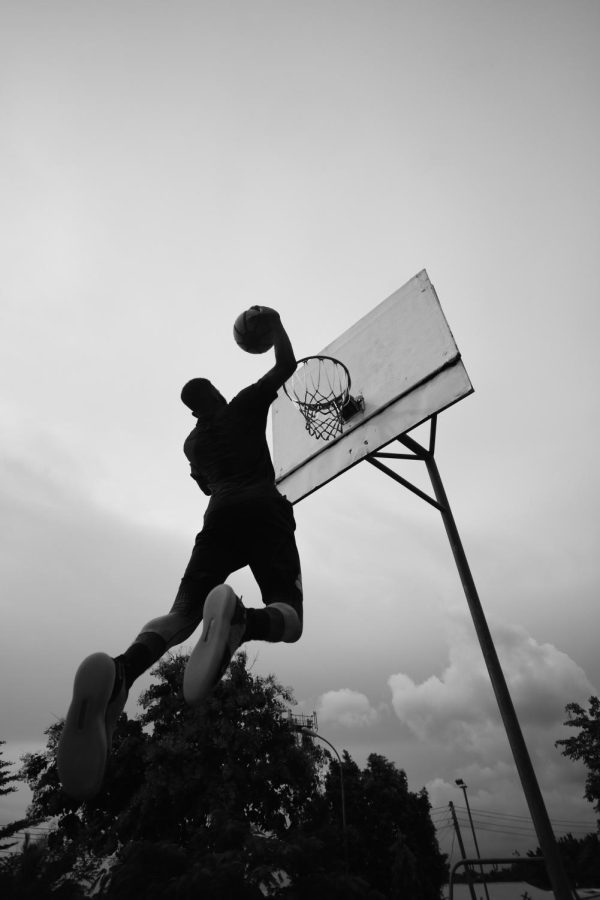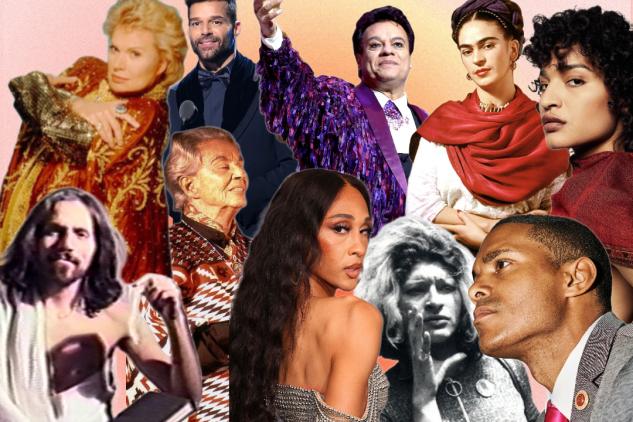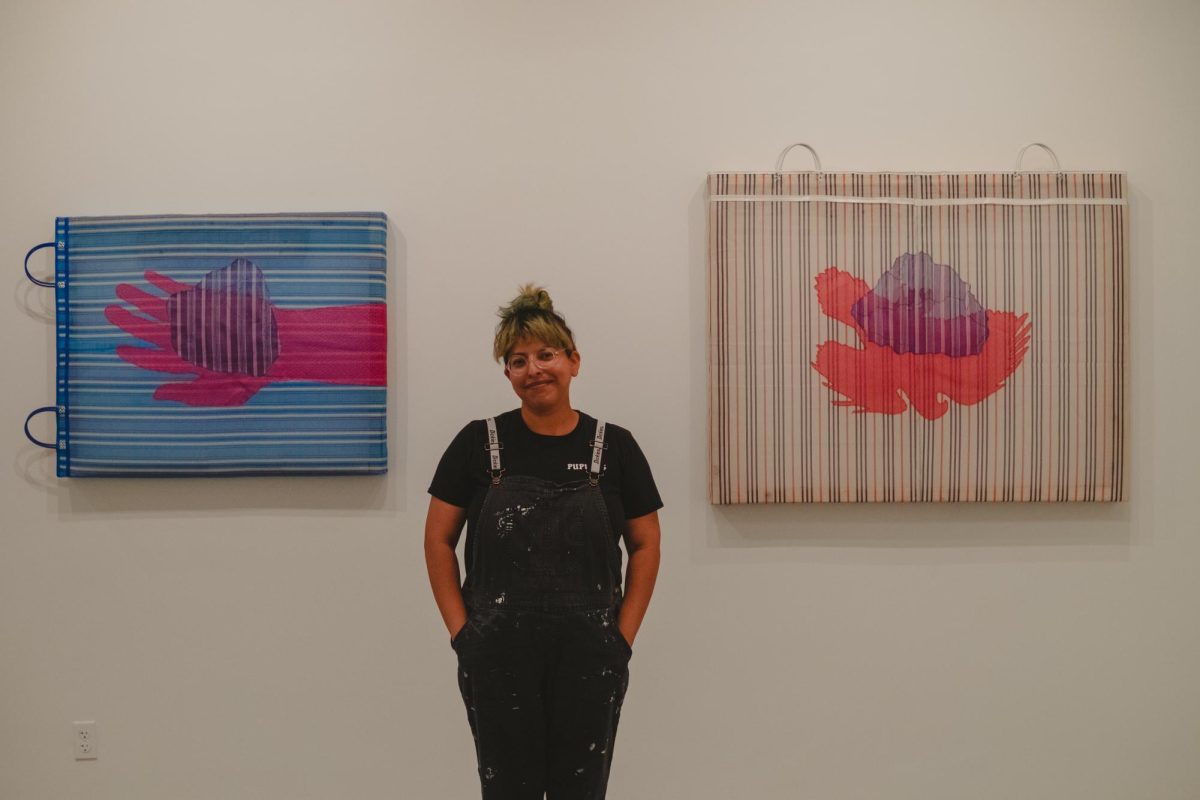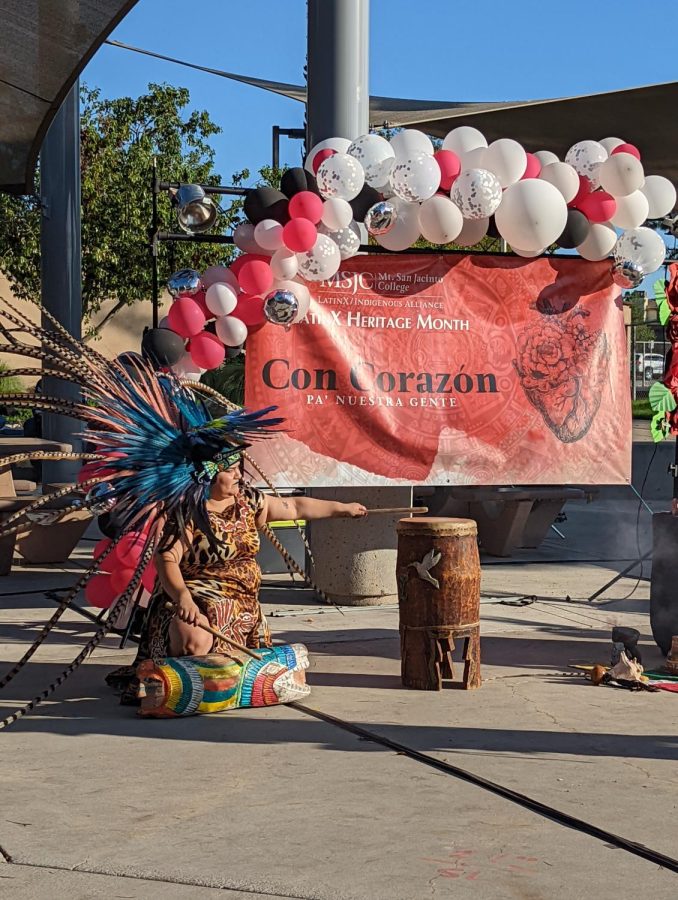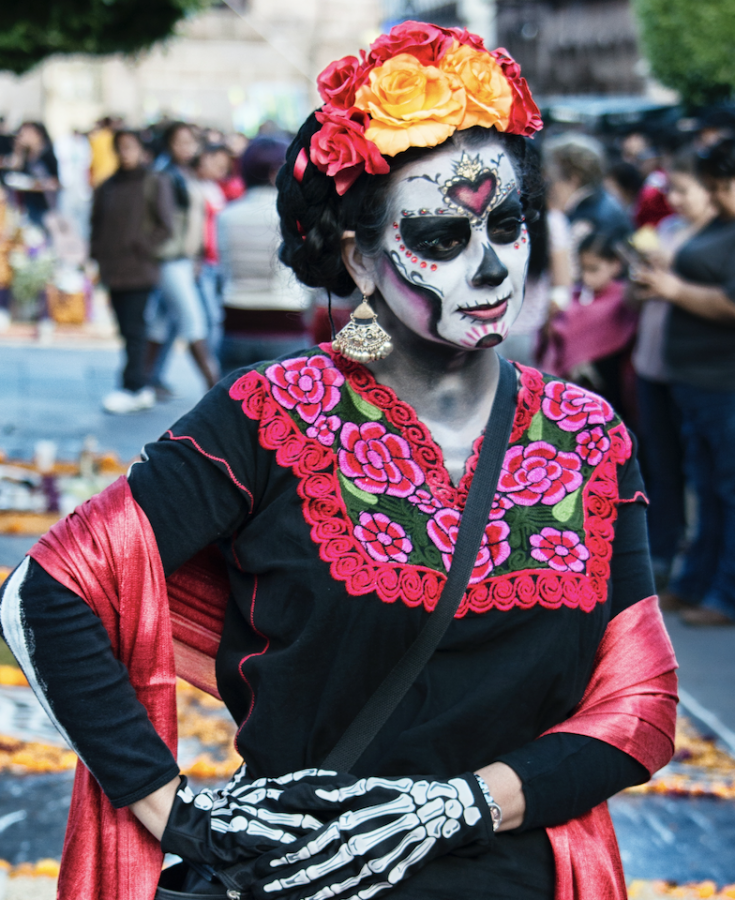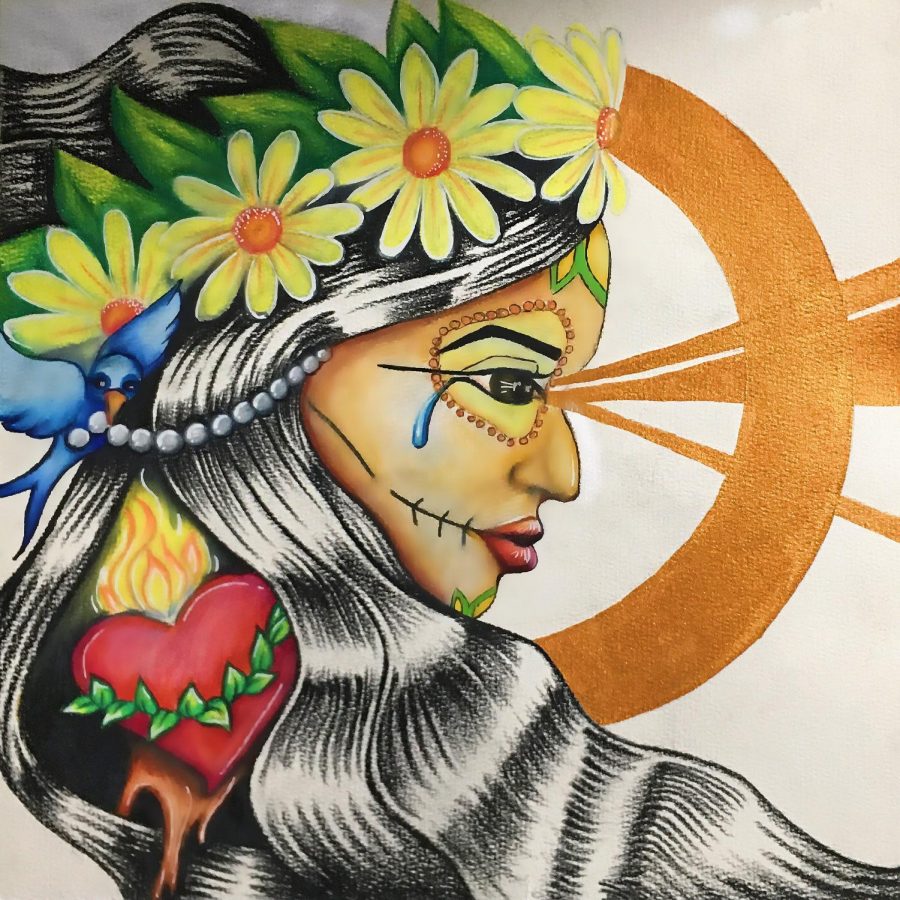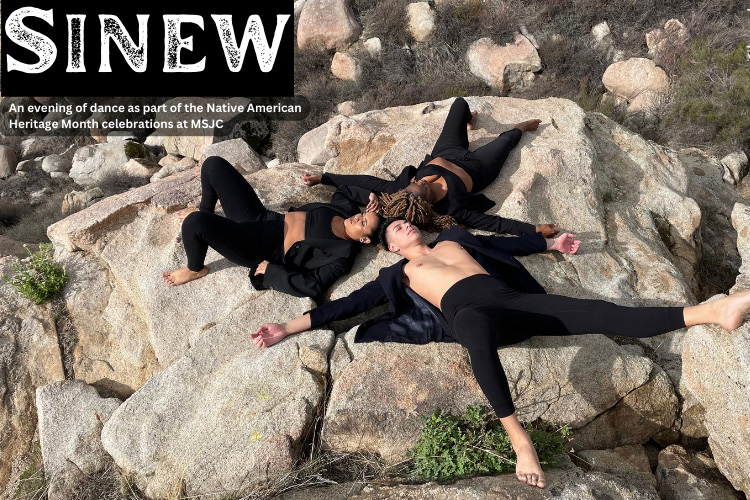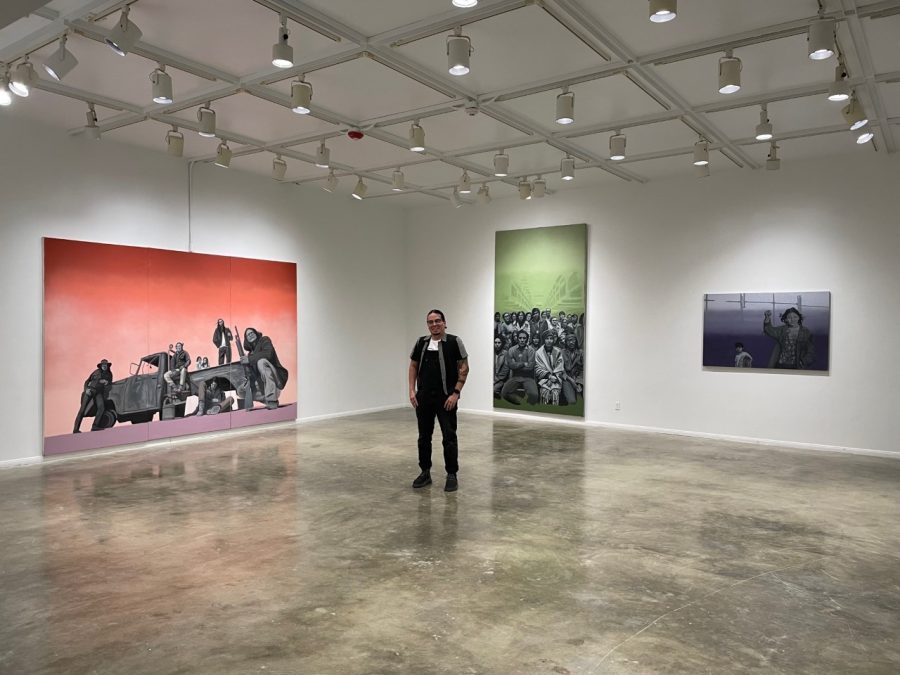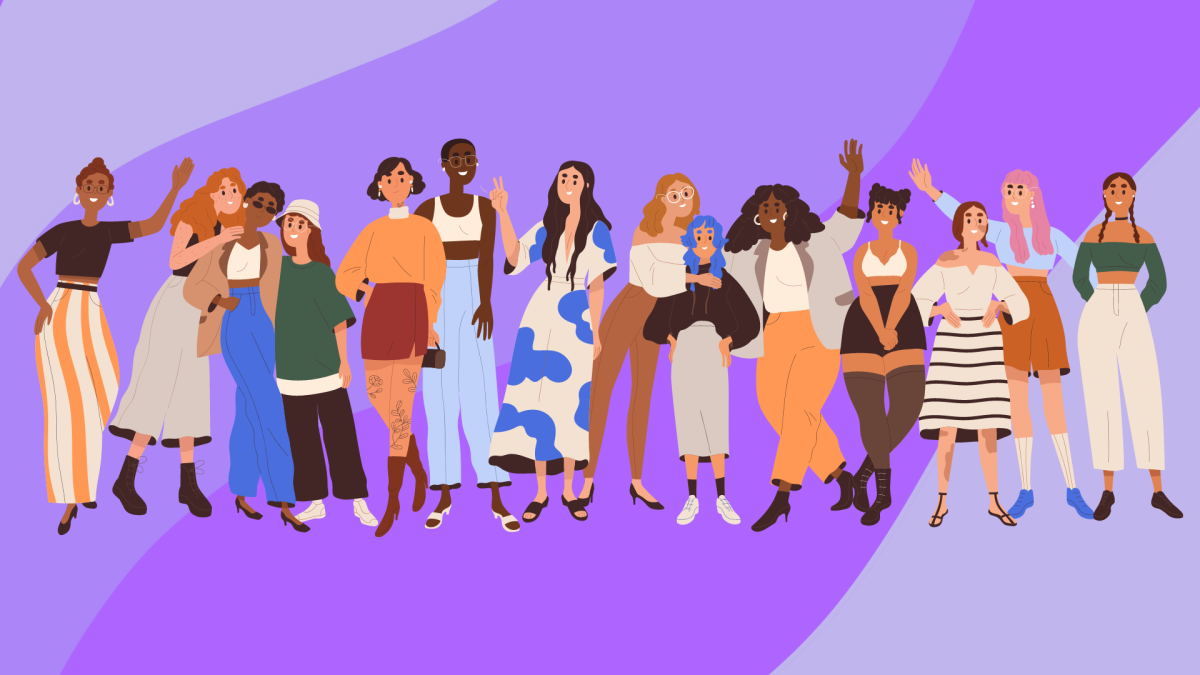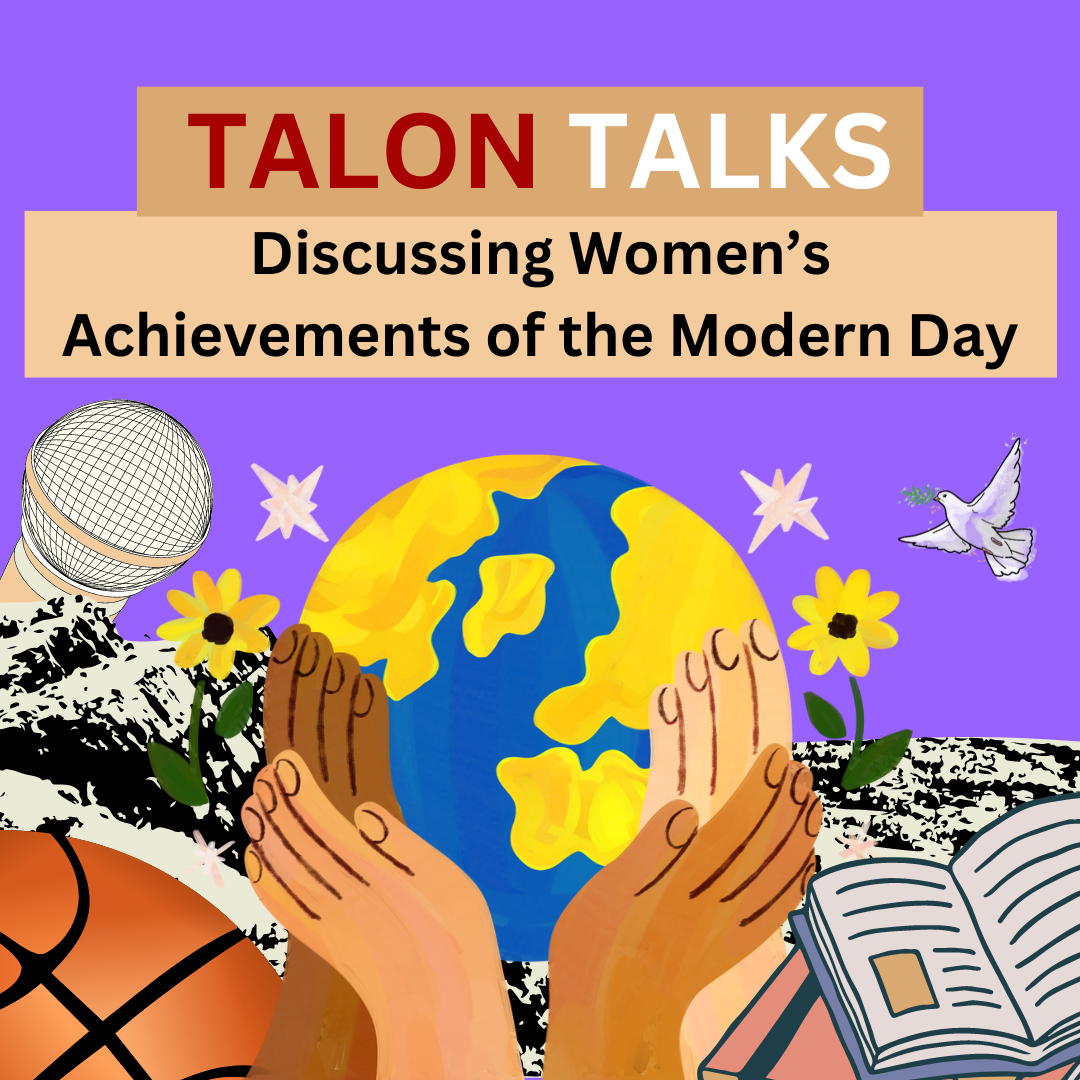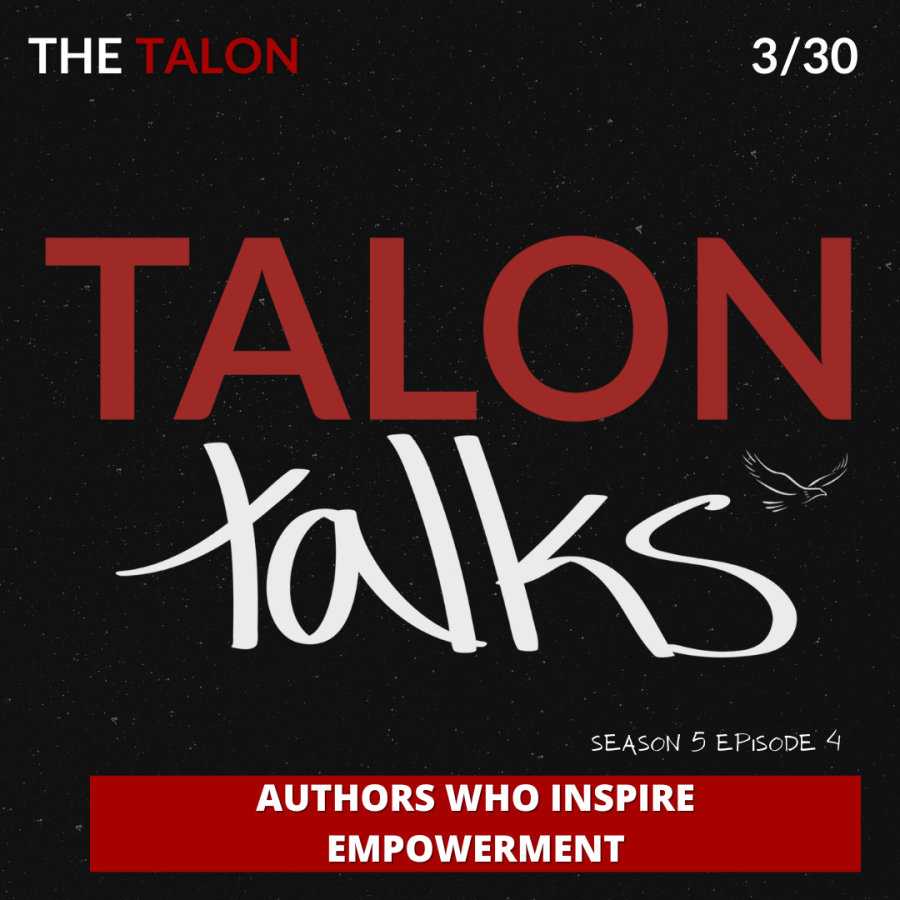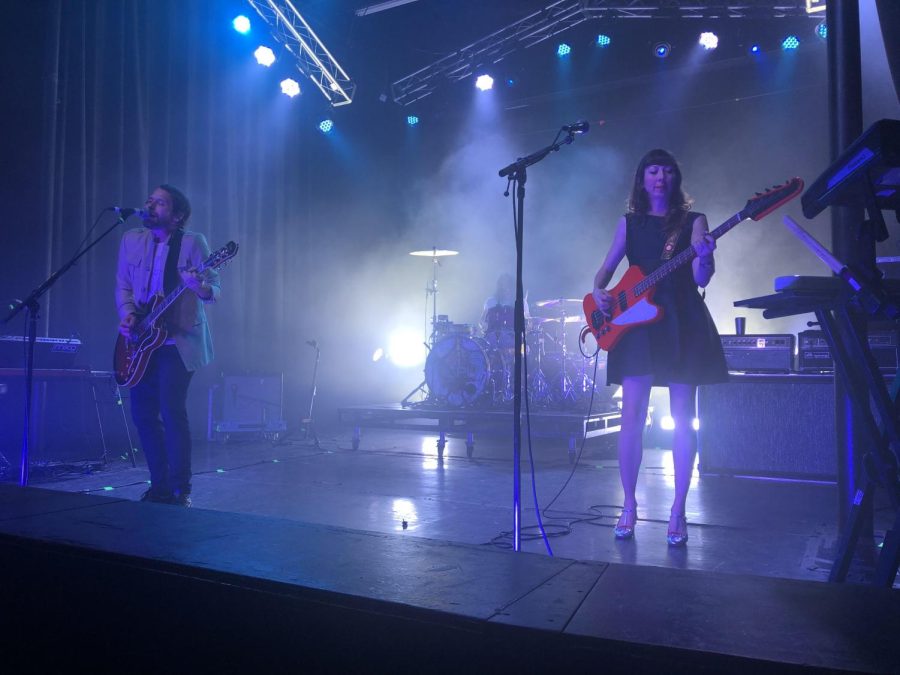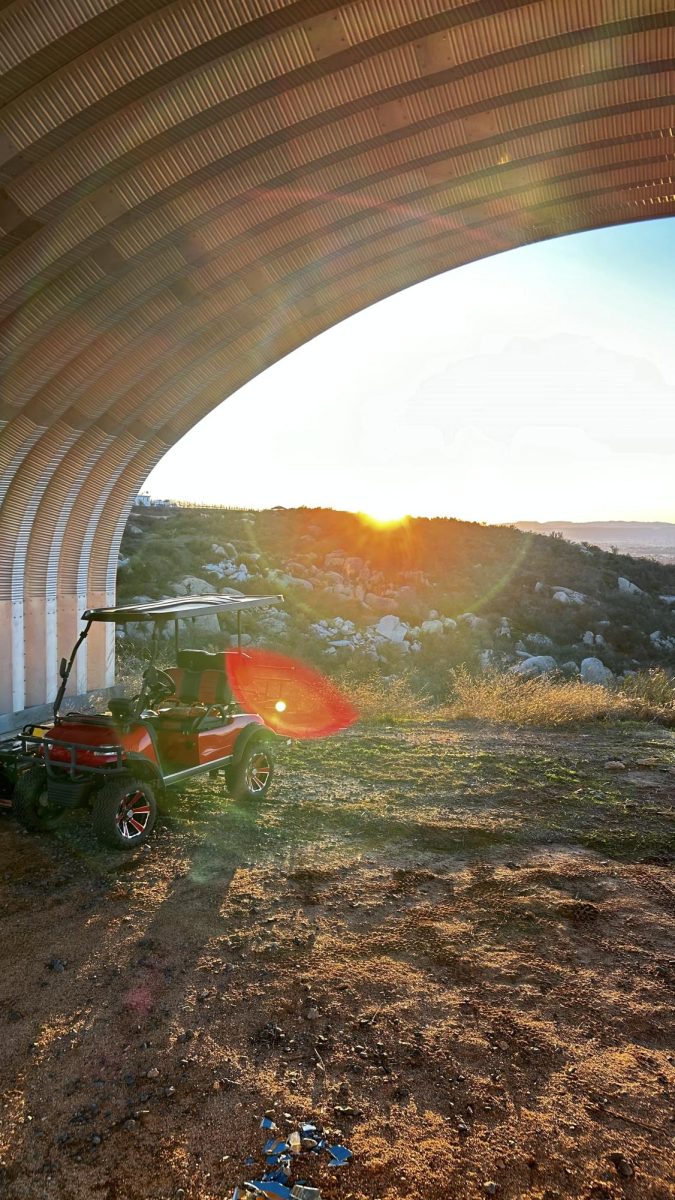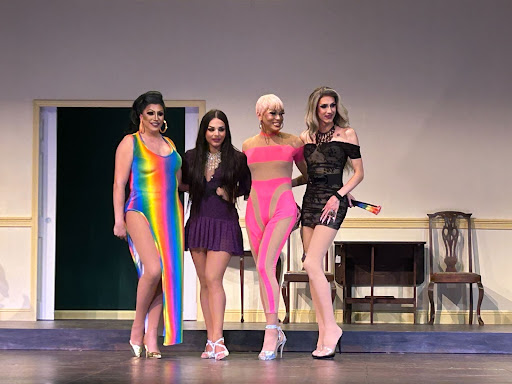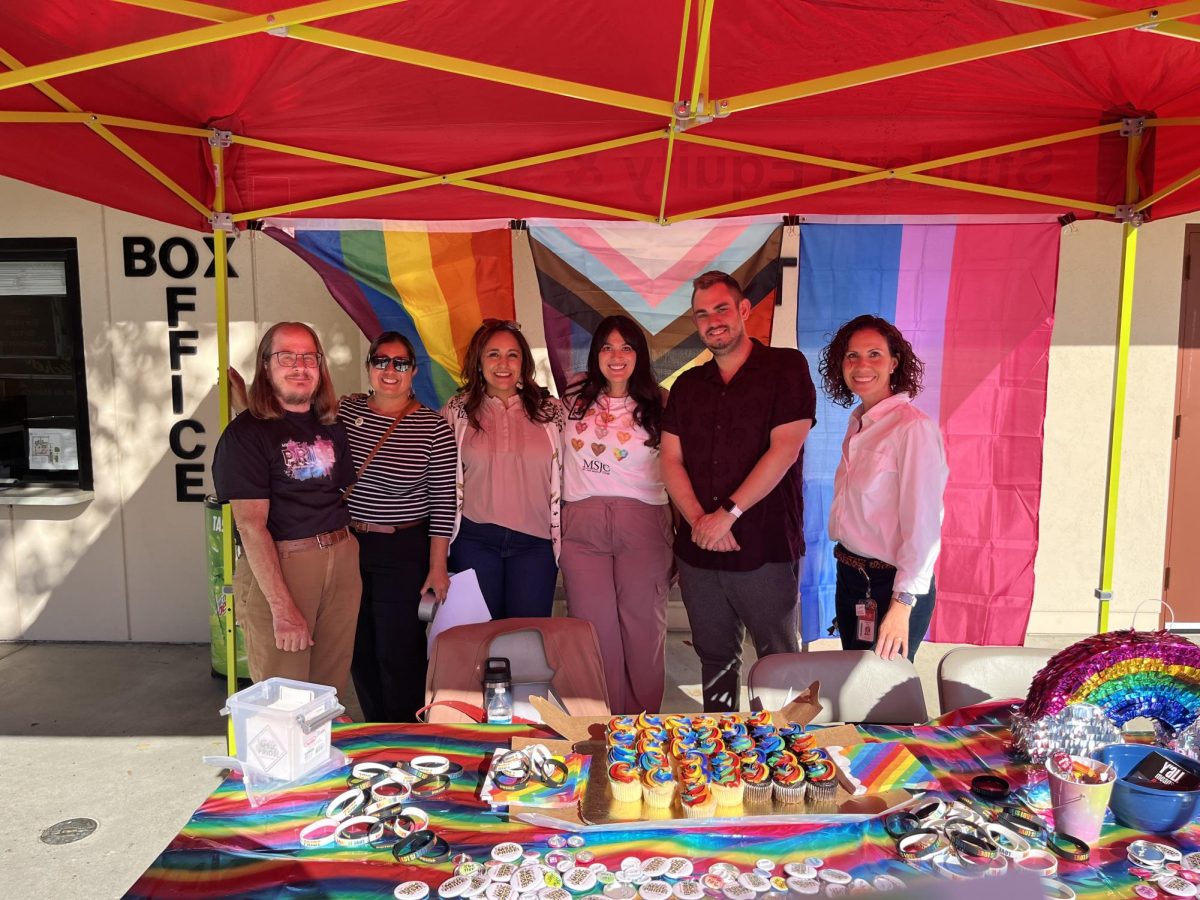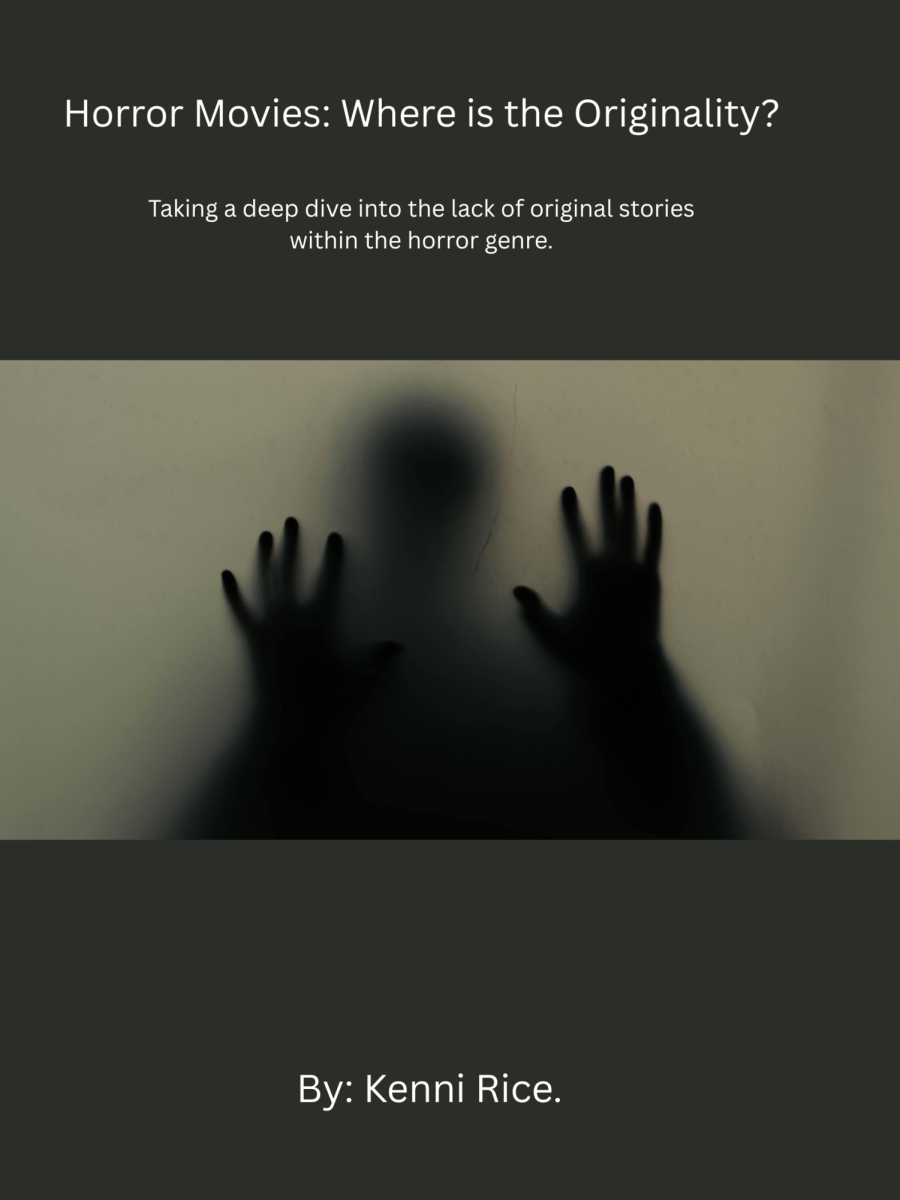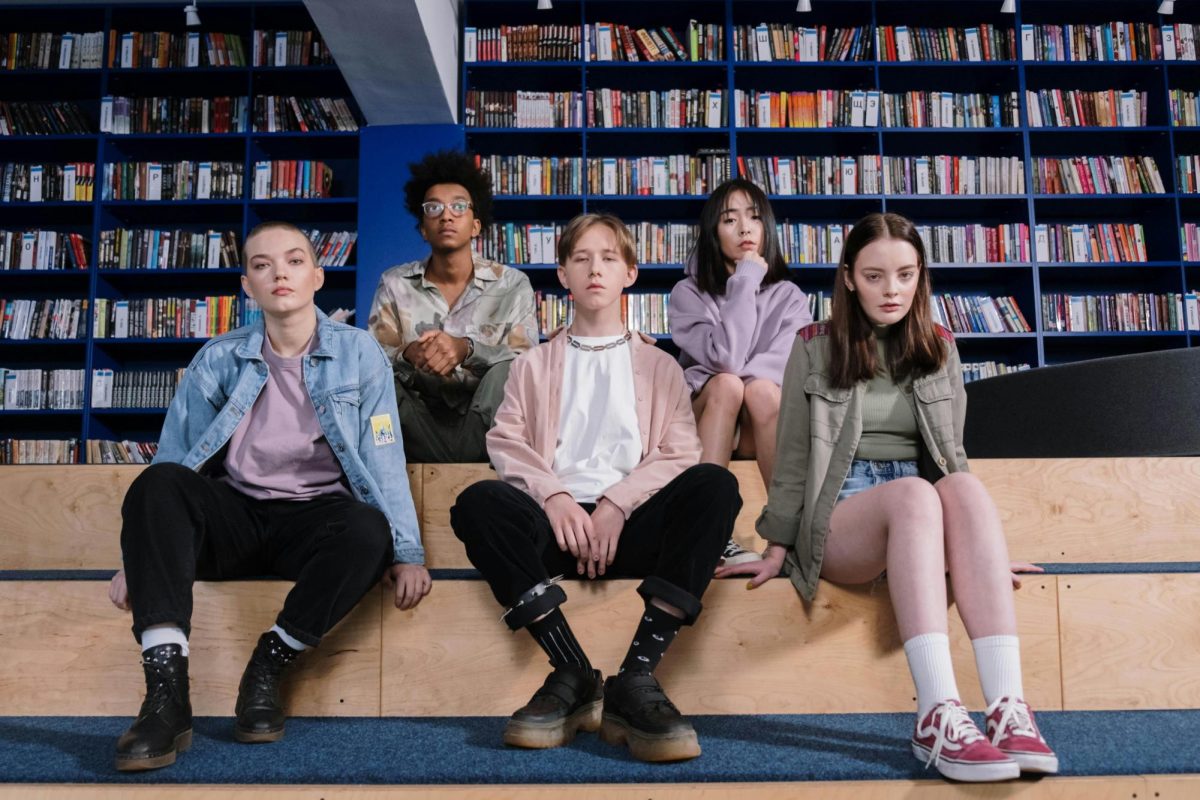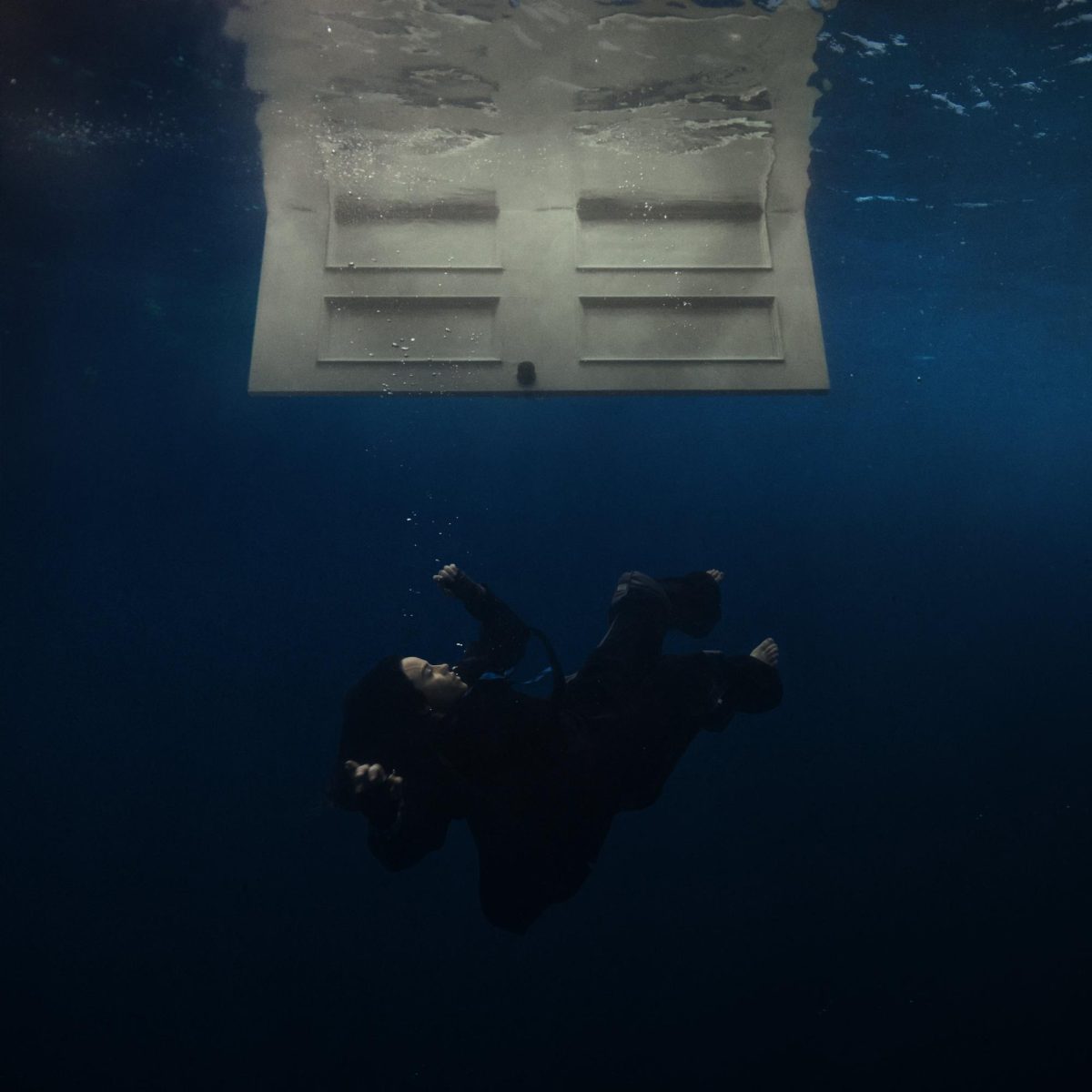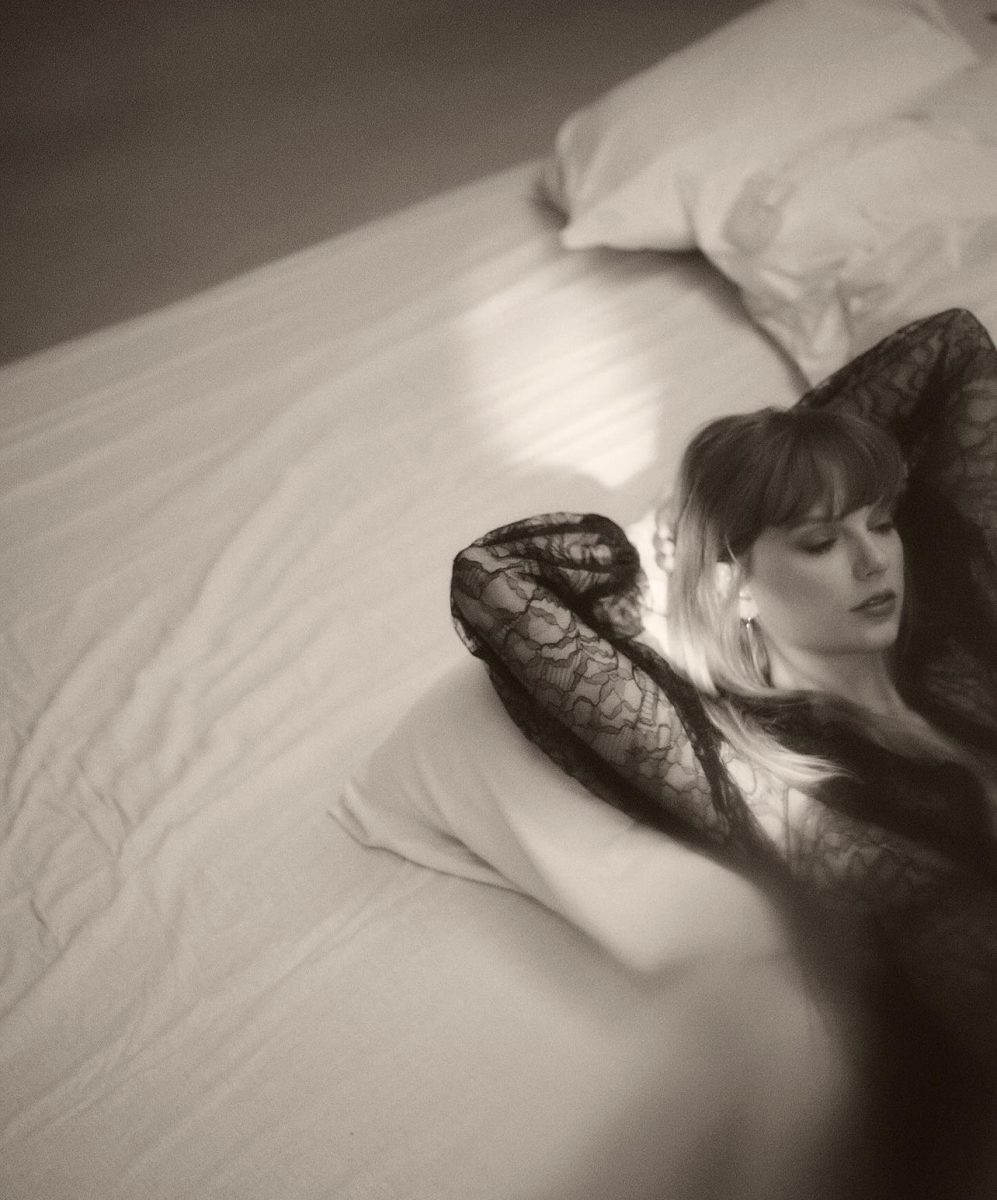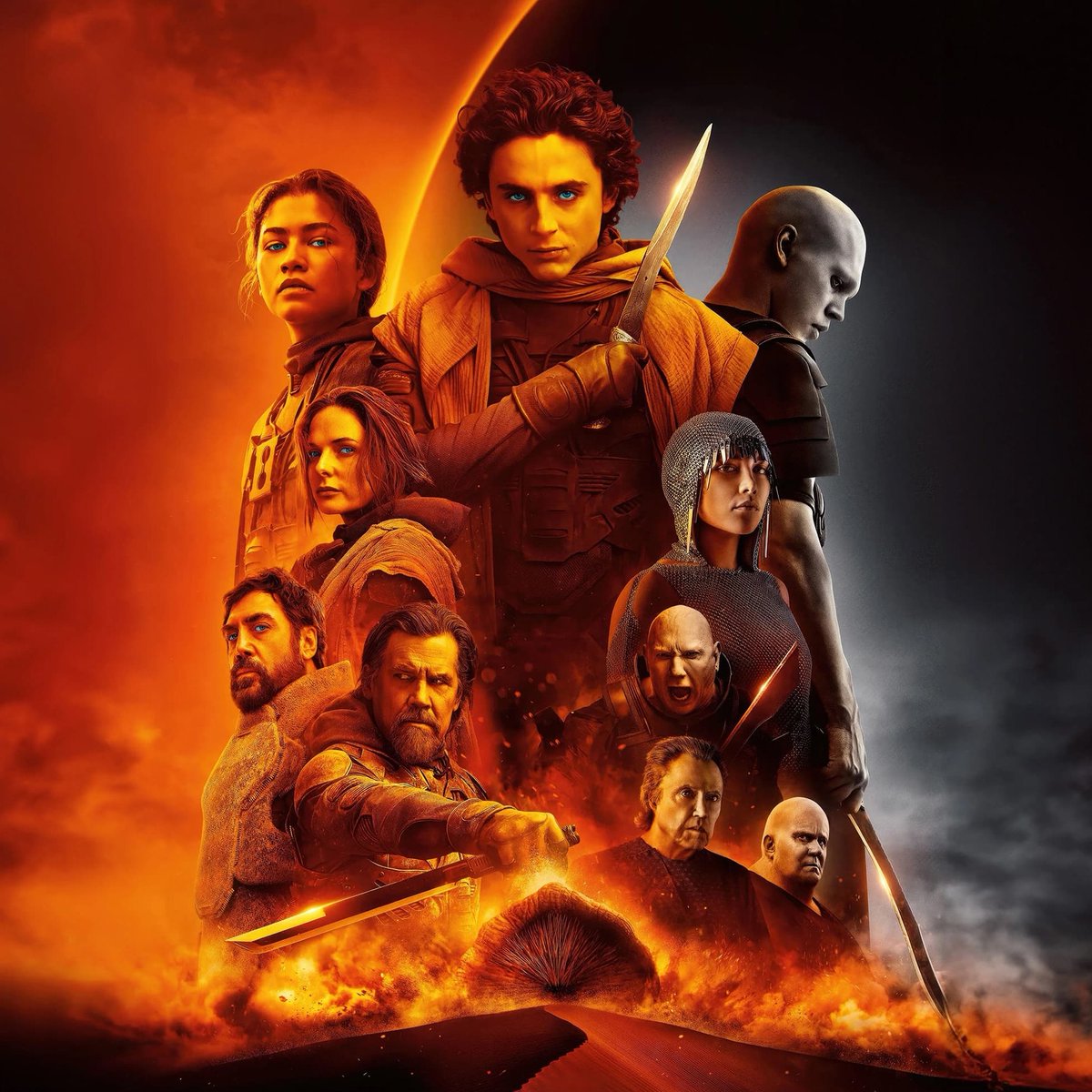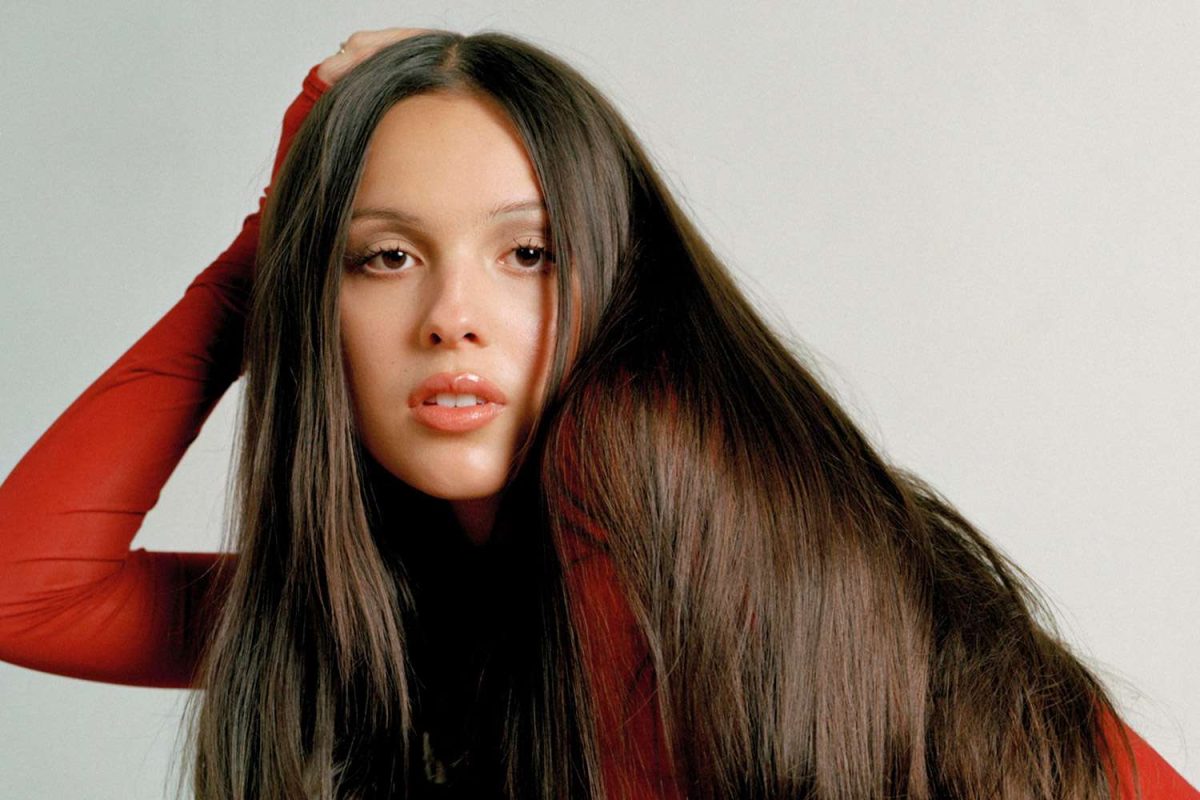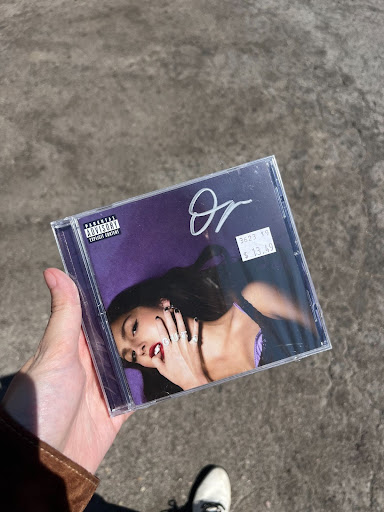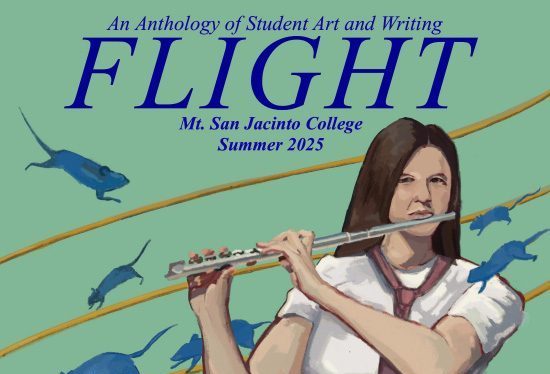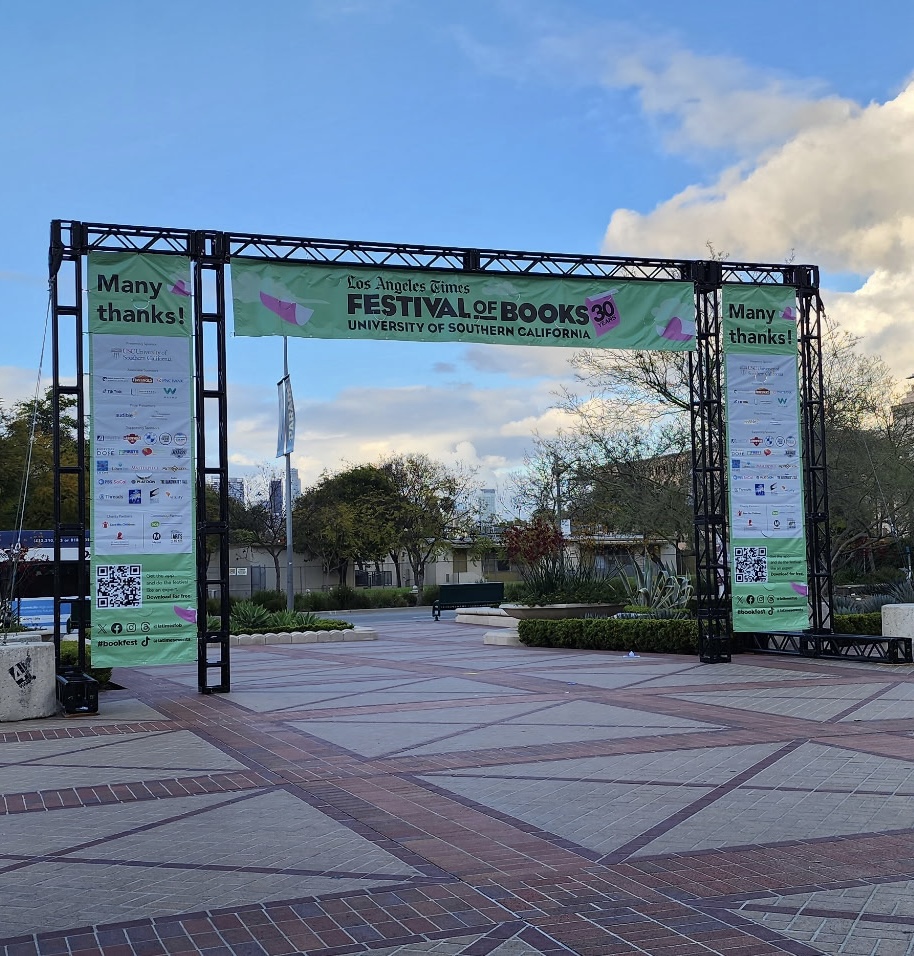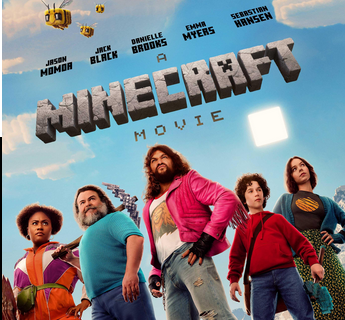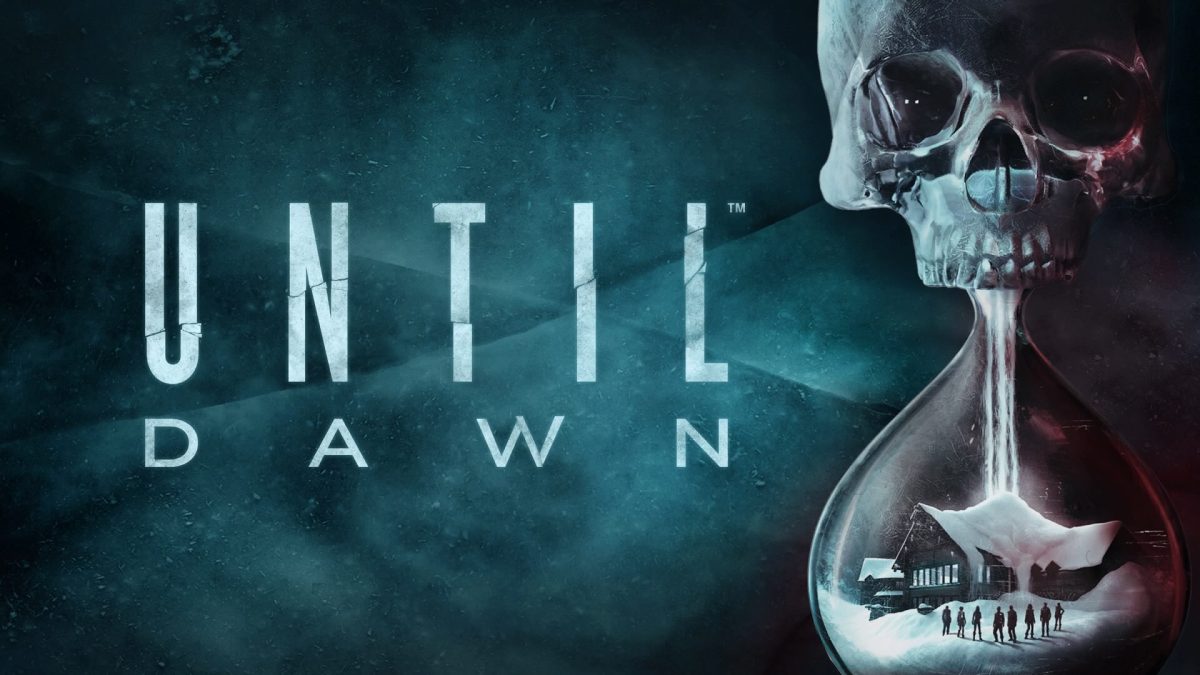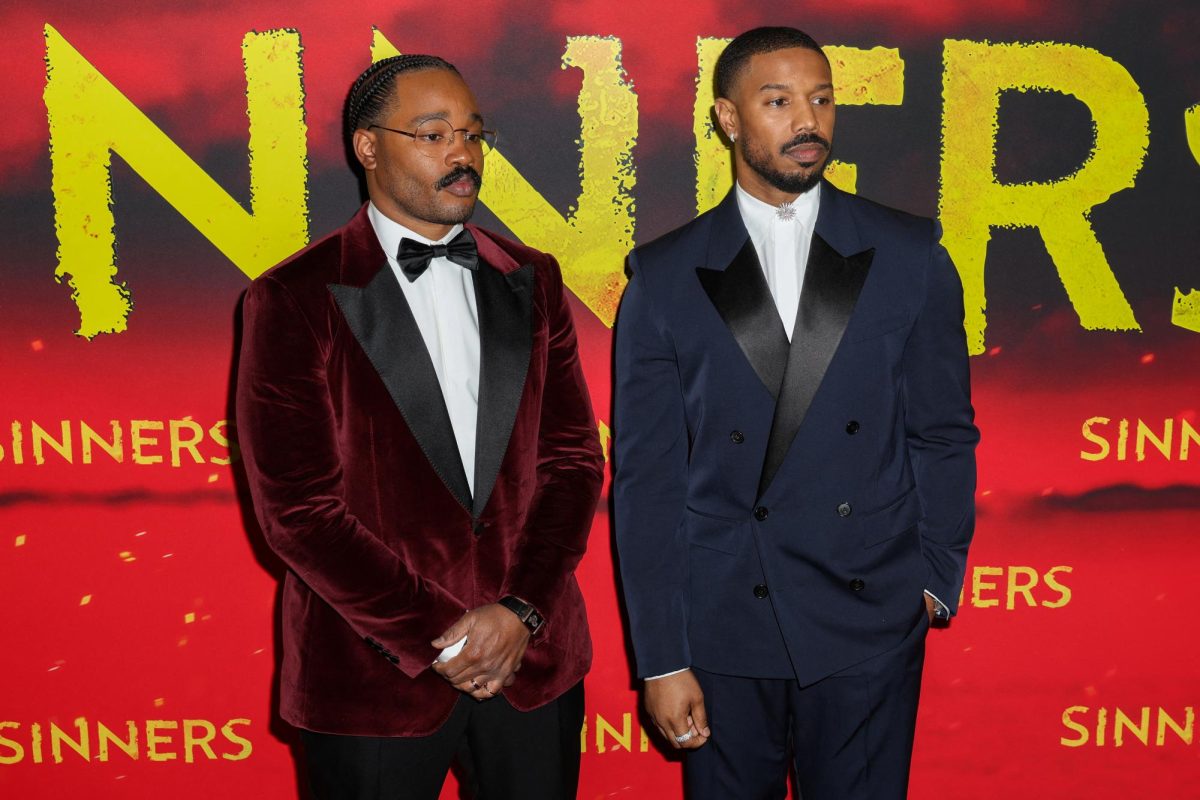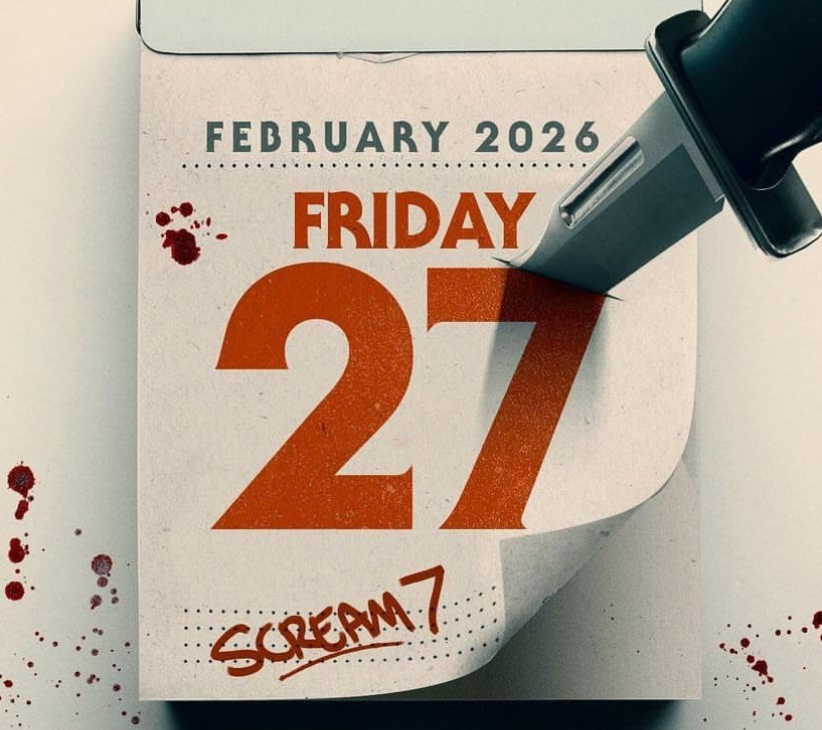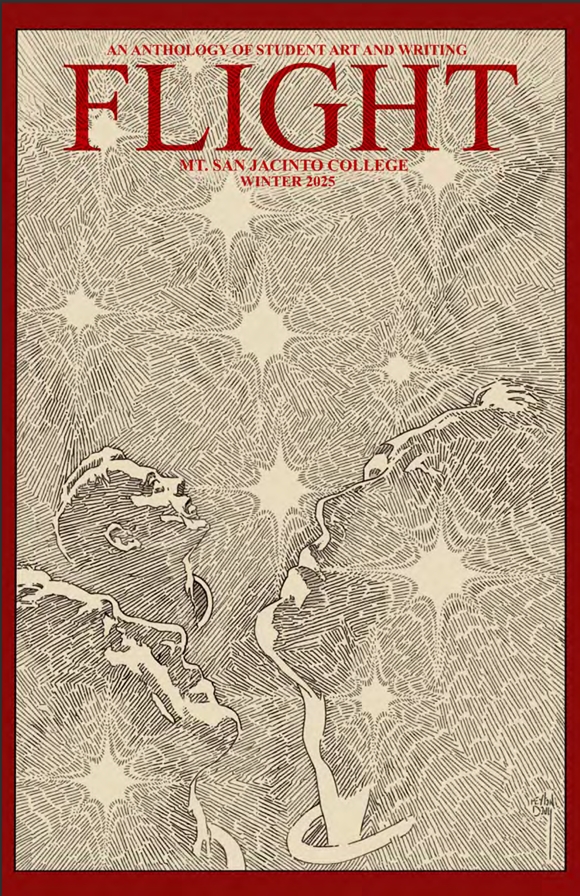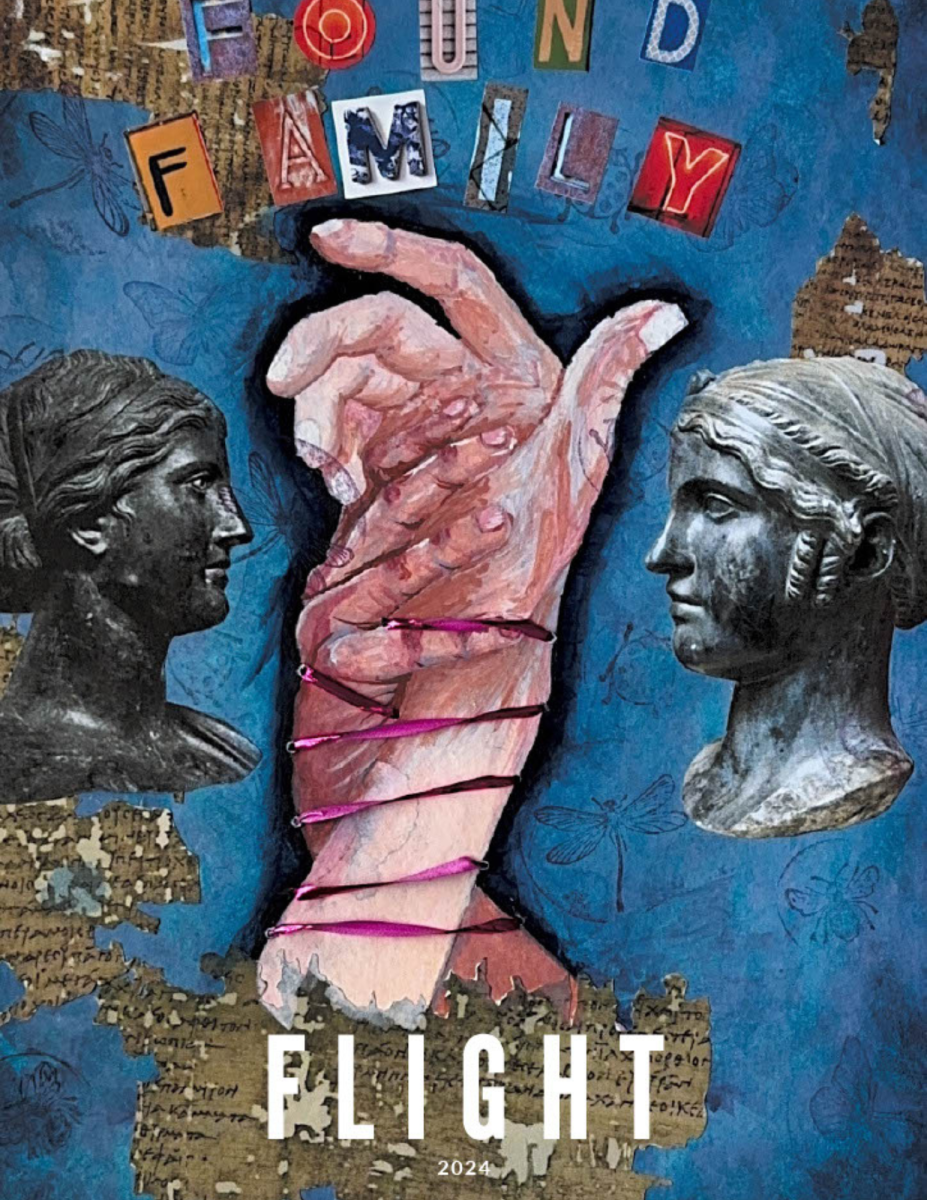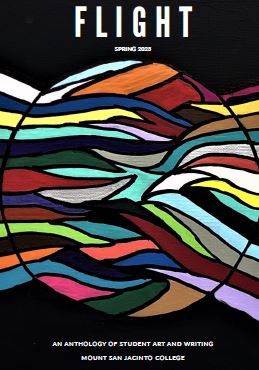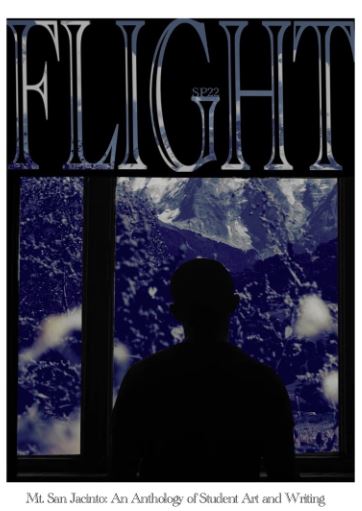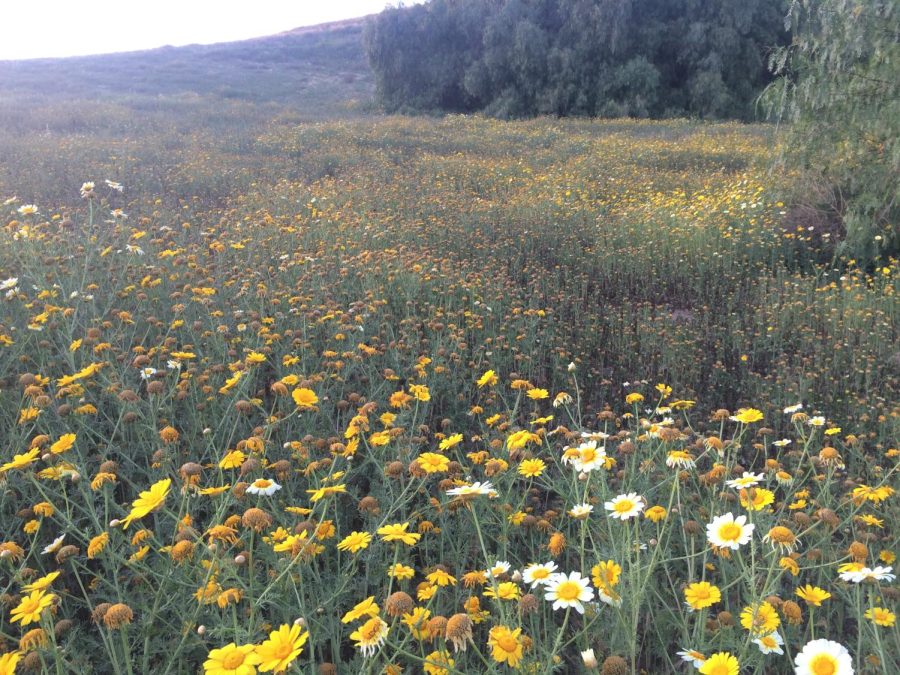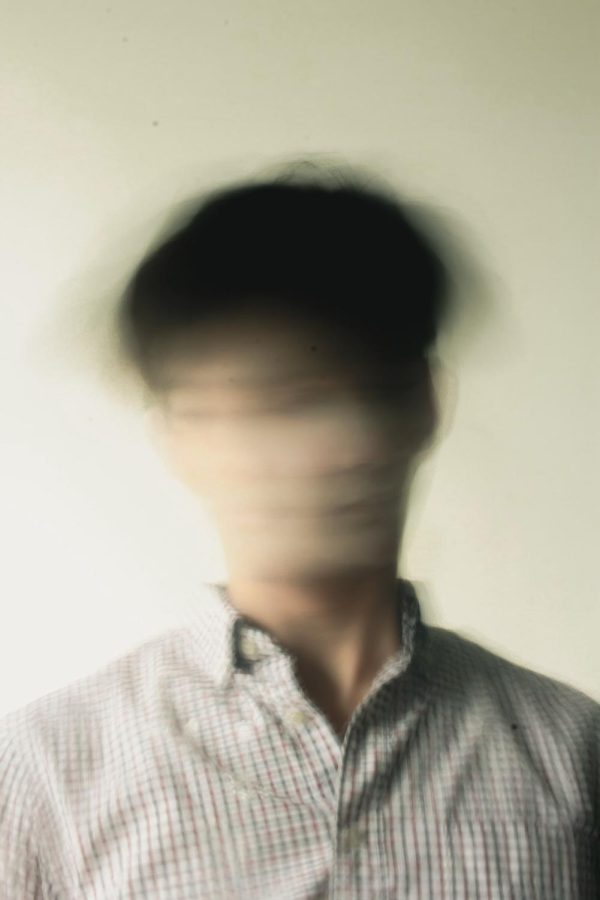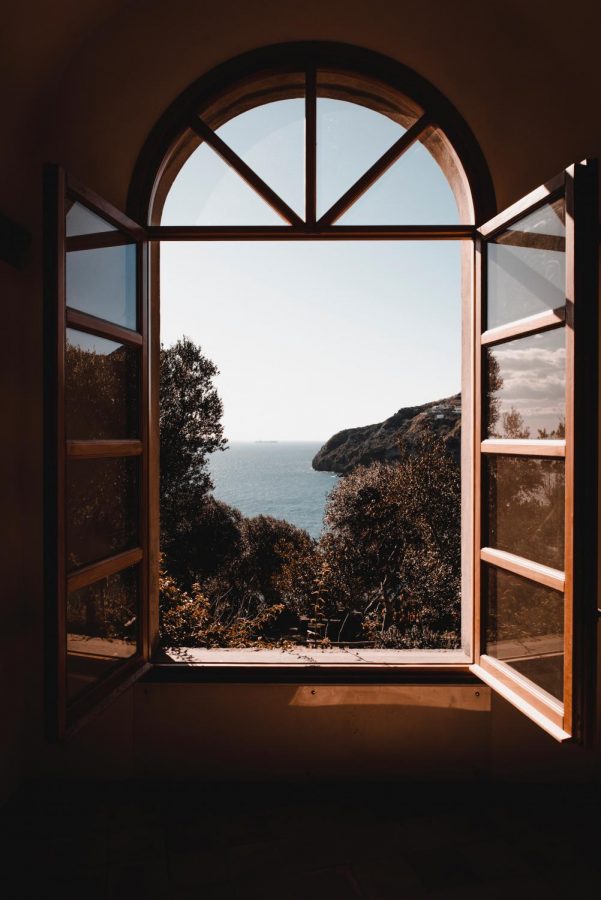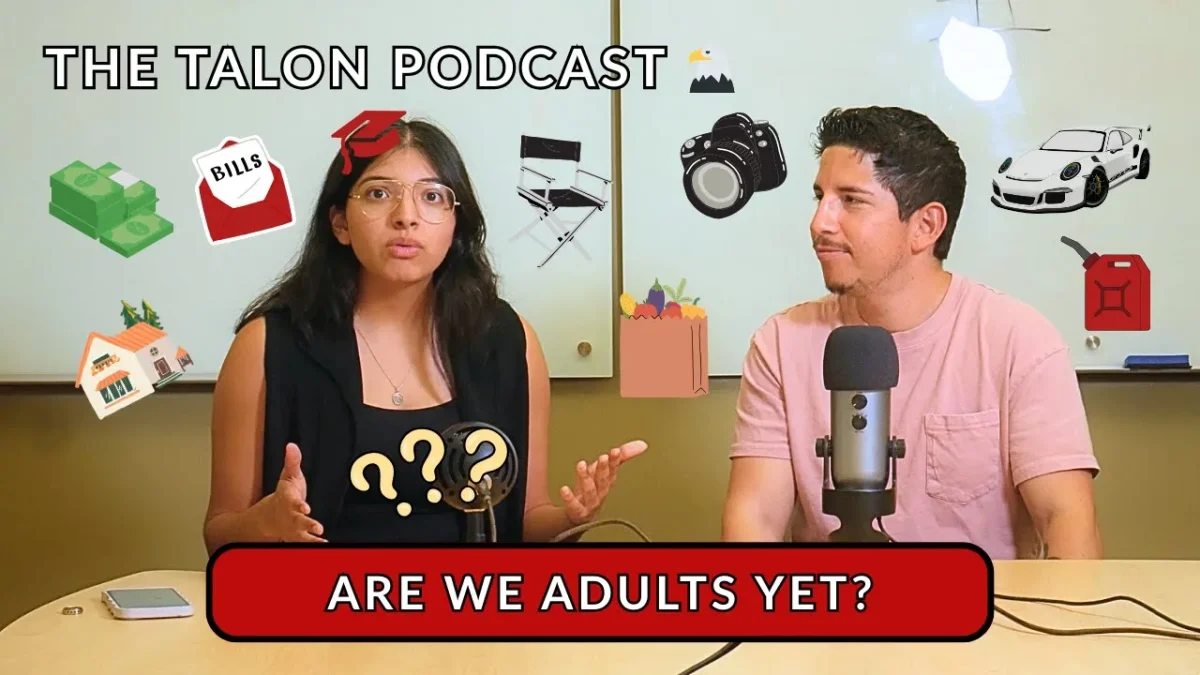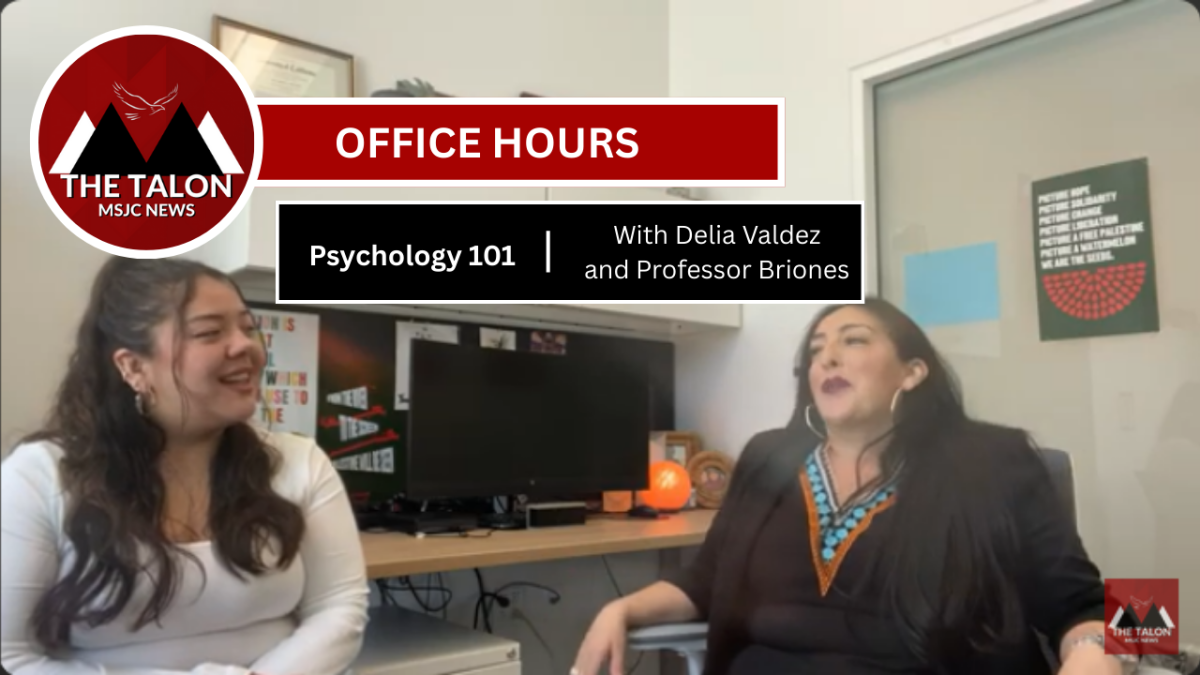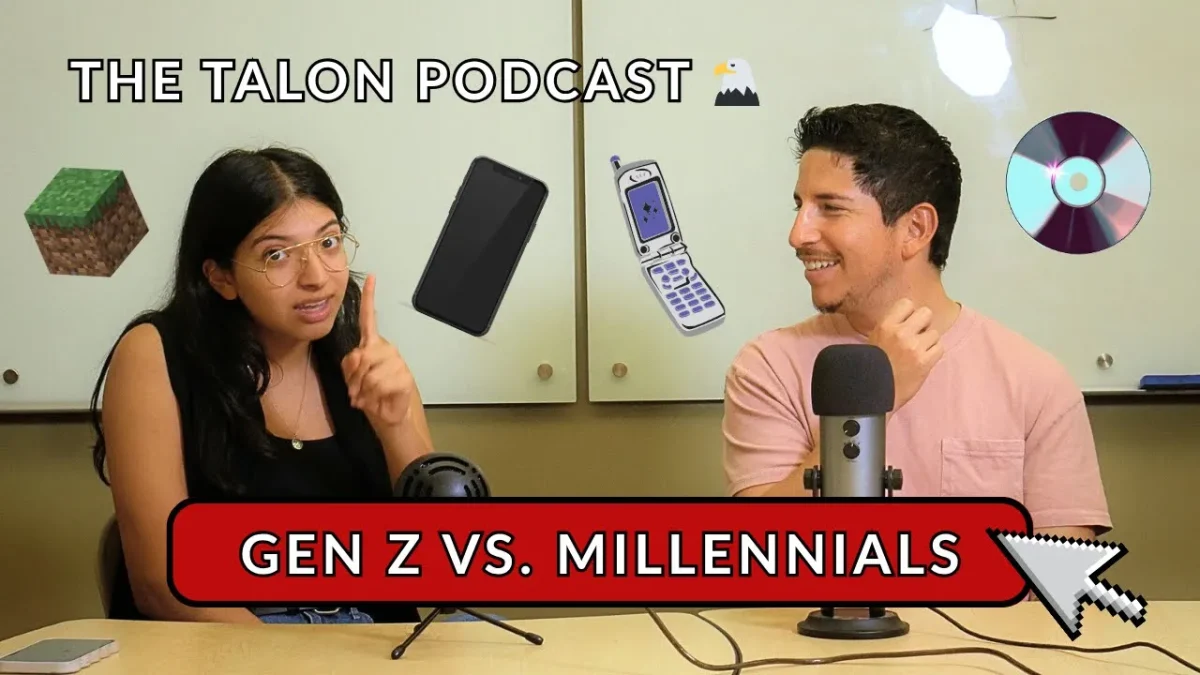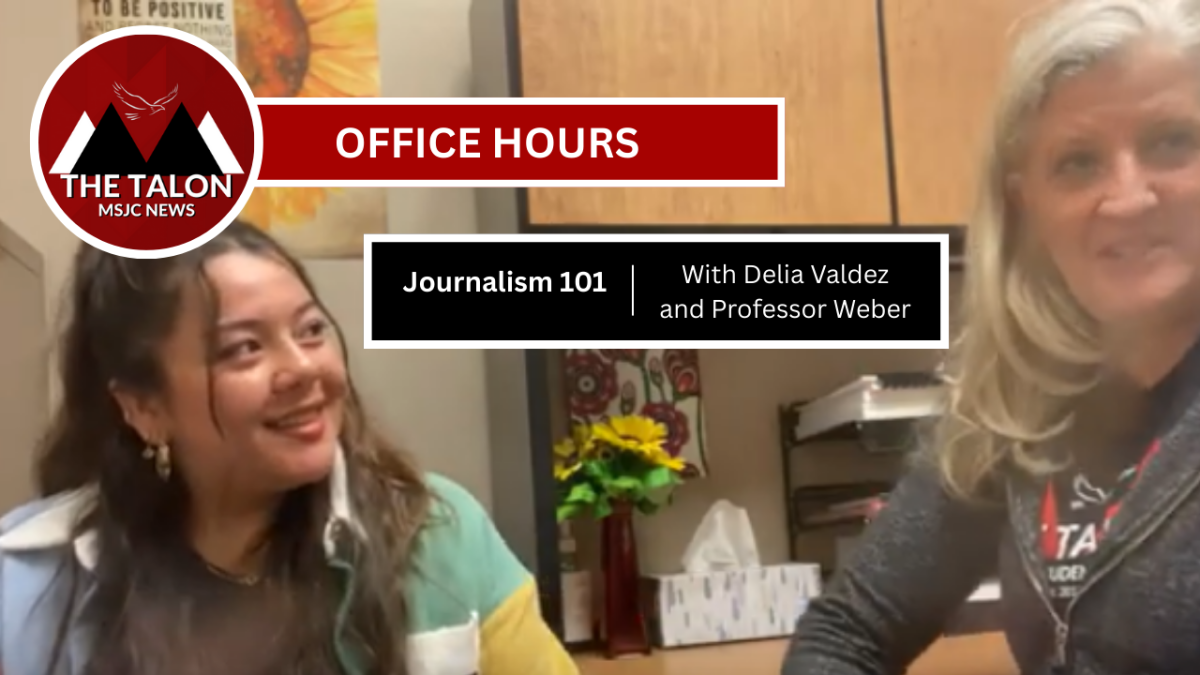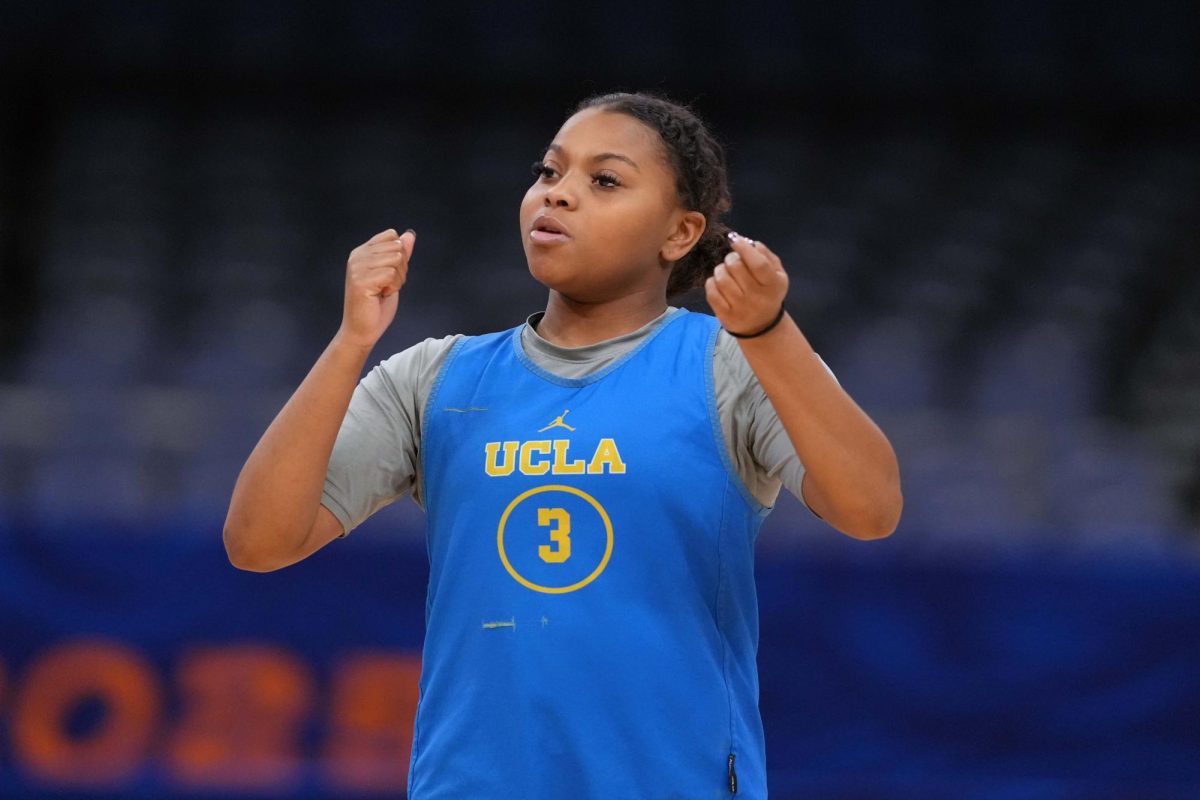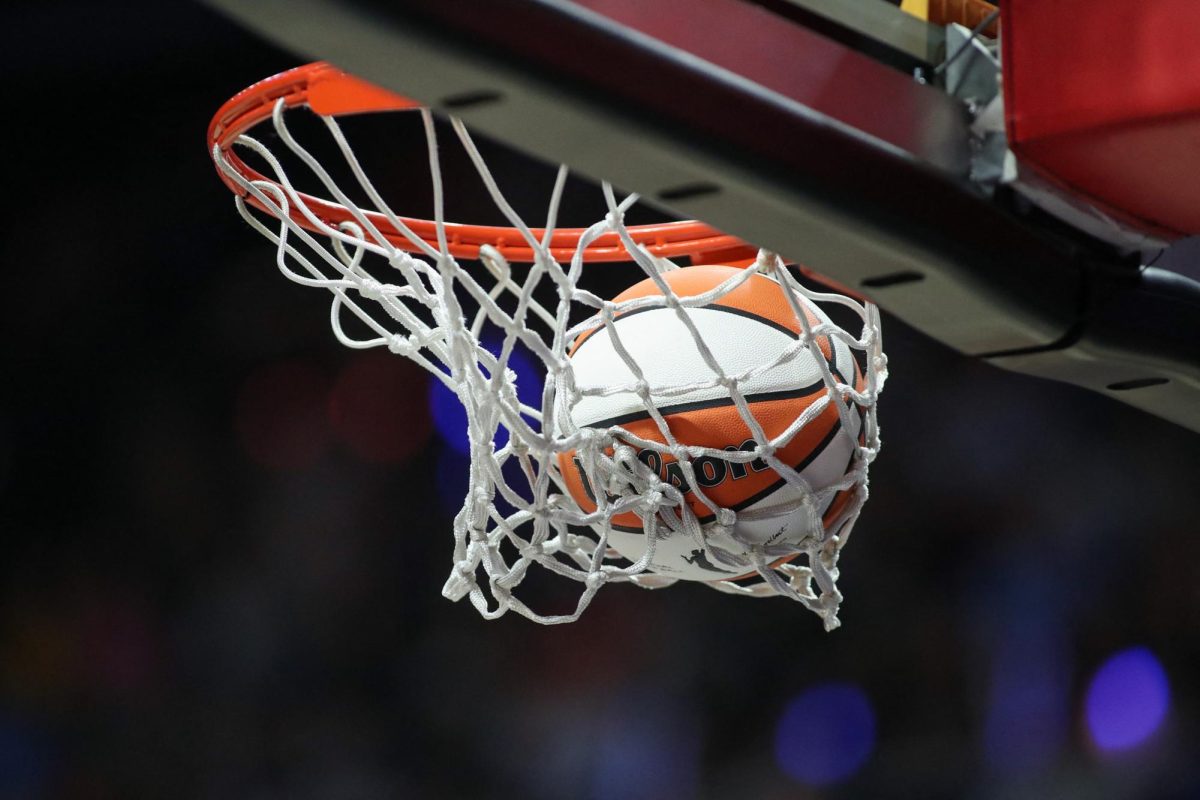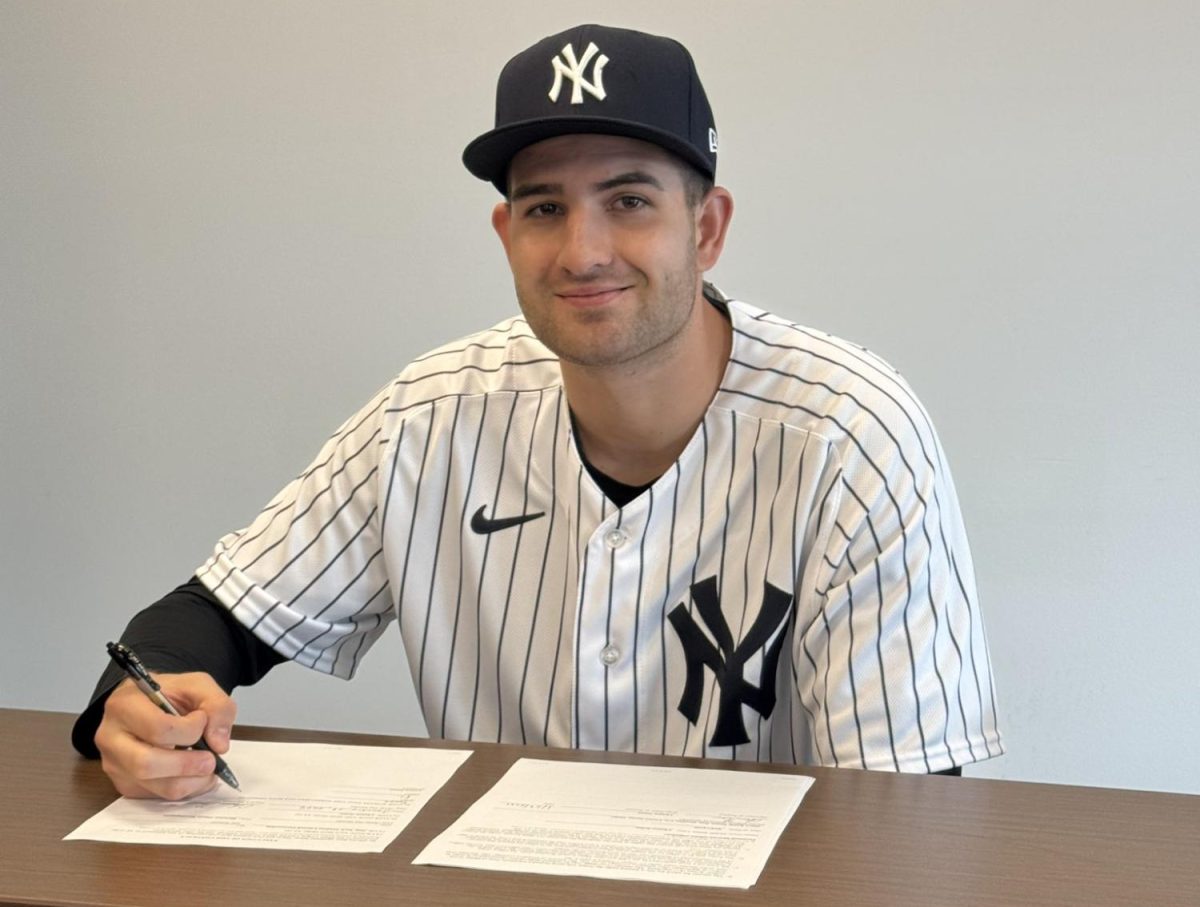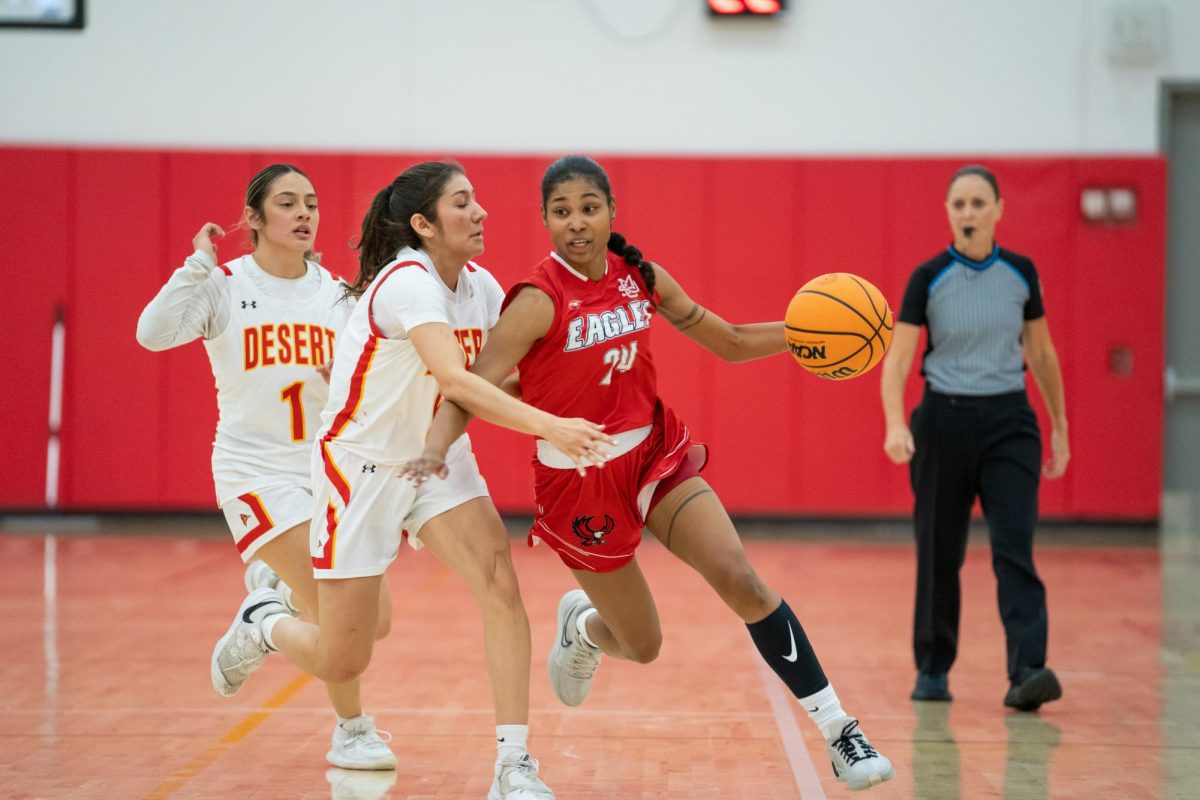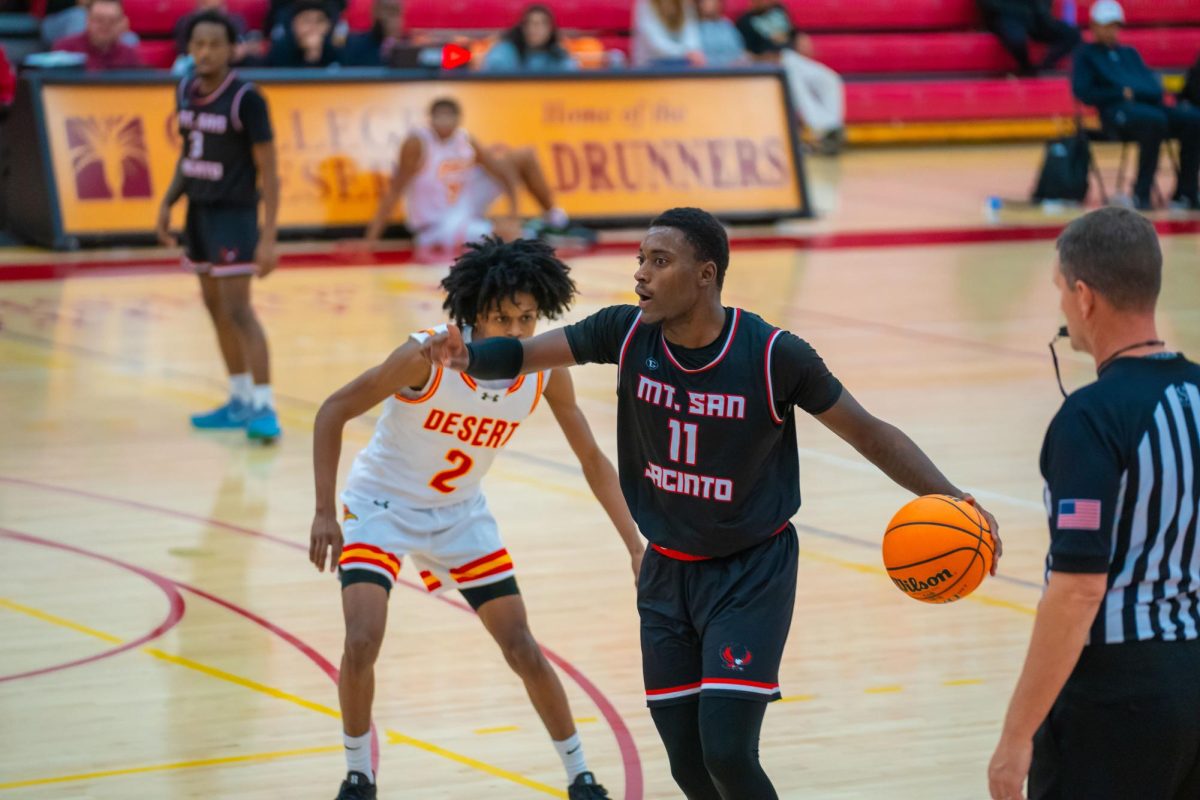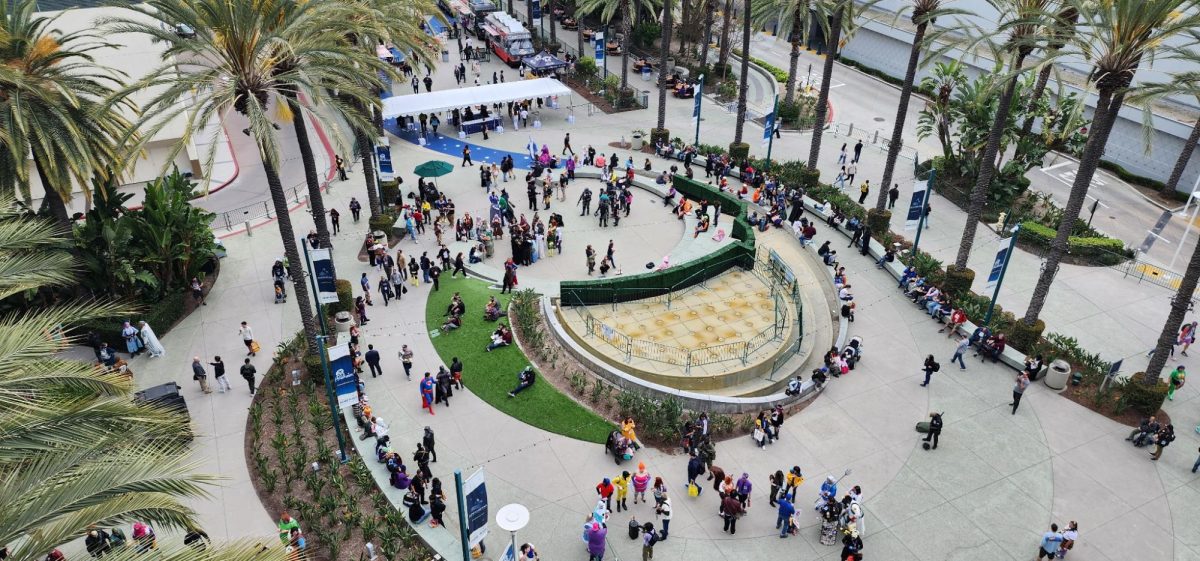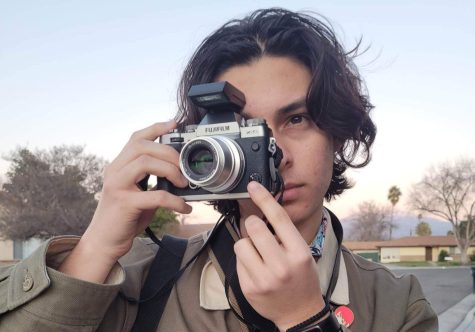I had the privilege to sit down with one of my favorite local bands, Feather Flowers, and speak with them about all things music, culture, art, and even school. They were very open and willing to speak on their experience in the music scene and where they plan on taking the band. They’ve only been together for a little over a year now, but they have managed to stand out amongst the rest of their peers by staying true to themselves. Drawing on their upbringing and culture for inspiration, they have managed to combine elements of jazz, rock, and hip hop, all the while adding in their Latin roots, to create something rather special.
When I had seen them live I thought they were excellent, especially considering how young they all were. I enjoyed the music, and the way the band approached it. Moments like seeing them use an upright bass live or having friends come on stage to play a song showed me that they weren’t trying to play as little as they could, they wanted to truly give the audience a performance that would stay with them, and do it their way. After reaching out to them, they were immediately interested in doing an interview. I met with the band on September 24th to sit down and have a conversation in hopes of bringing more attention to them and their goal as artists, what I didn’t expect was for them to be so welcoming and open to my questions. I would like to say thank you to the band for their cooperation. Without further ado, here is my conversation with Feather Flowers (and don’t forget to check them out on Instagram @featherrflowers).
Can I get each member’s name, role in the band, and age?
“I’m Joseph, I’m the drummer, and I’m 32.” “Vicktor, I play bass, and [at the time of this recording] I’ll be 20 next week.” “I’m Karissa, I’m the vocalist, and I’m 21.” “I’m Esai, I play guitar/lead, I’m 21, I’ll be 22 next week [as of the time of this recording].” “I’m Didier, I play guitar, do the sound, I’m the cute one, manager. 20.” “I’m Elias, I play keys. 19.”
Why the name Feather Flowers?
Didier: My last name is Flores, which in Spanish is “flower” when translated into English—and, it’s kind of because of my dad, his name is Eder, and when we would work together at my job, his nickname was ‘Feather,’ so I just thought it was cool, or funny.
What are your sources of inspiration for creating your music?
Joseph: For me, it’s the chemistry—the chemistry between all of us and our relationships. Being present with everybody, and just trying to listen to each other–and I think that’s in the moment when we’re playing together, but then of course, musically, I draw from different genres: jazz, rock—jazz fusion, and some world music. I have an uncle who plays marimba stuff.
Didier: I think at this moment in time, because we’re barely starting to make our own material–I’ll just say, the artists that we’ve played so far, that I think we sound the best when we play them, or that’s the easiest for us to play, are [inaudible], Amy Winehouse—or you know, any Latin or Spanish rock group, like Selena–we do her pretty good, I think. My personal favorite artist we do is Santana, you know? And I’m kind of like the only one that likes to play him [at this everyone in the room bursts into laughter], but we still play him anyways. I feel like he opened a big door for us, too, like when we started, that was when we did a little transition into hip hop, and we did more pop stuff, we did Mac Miller [turns to Esai], you want to go?
Esai: Yeah, I mean, just for me, I think what Joe said gave me better insight, ‘cause the chemistry we have, and that just involves each of us and what we bring in personally. Like he said [points at Didier], he brings in more of the Latin roots and Santana’s his main inspo, and when I joined I was wanting to do some–well, I heard you guys doing-
Didier: -like Stevie Wonder?
Esai: Some stuff that was just like, similar vibes, but the Mac Miller song we chose is all based off the bassline, I’m like ‘This is a song our bass player can play, and it’s got a groove to it, so it’s all good.”
Didier: He does bring up a point, I think when we choose songs for ourselves, we choose things that we know we can play, or that we wanna play, or that we think would fit right for how we play as musicians, you know? Like he [Esai] said, we played What’s the Use?, like Mac Miller, it’s got that Thundercat bassline, and he’s like “Vicktor’s got it.” Like all our [inaudible], he can hang really good, he carries us during those ones, he’ll play organ, he’ll play synth, he’ll just play like four different keyboards on his two keyboards, and then she’s [Karissa] fluent in Spanish, so she can sing in Spanish.
Karissa: I grew up with that, so I enjoy singing it and being able to bring it out, myself. I also like R&B, and I love jazz, too. So it’s good to be able to play all of that with everyone.
What genre do you consider yourselves? Do you care about genre?
Joseph: It’s too vague right now, we’re still in the phase of writing new music.
Karissa: I think we’re able to play a lot of different things. As of now I think we’ve done pretty well in all of them that we’ve attempted. Now we’re just trying to find which one is more prominent when we explore writing.
How long have you been playing music for (as individuals and together)?
Joseph: Well, this specific version of us, I guess it’s been less than a year?
Didier: The whole group started a year ago. First, we were called Sugar Plum, and it was like, four of us, initially. It was last summer, not this year’s summer, but last year’s summer, in the beginning of June?
Karissa: June or July of 2022.
Didier: And then, a month or so into that, we acquired Joe, and that’s when we changed our name to Feather Flowers. Flash forward to this February, Esai. Then flash forward to two months ago, Elias.
Joseph: Has it only been two months? Wow, I feel like we’ve done a lot since then–but okay.
Esai: So I’d say roughly a year for this current group.
Didier: Plus there’s two singers that aren’t here.
Joseph: And I wanted to say that we all met at RCC [Riverside City College]. So we all have some level of playing with each other from there, too. So before Feather Flowers was a thing we all sort of played together at some point.
[On playing individually]
Joseph: I guess it was 13 [years old], I started off as a guitarist. I wanted to be a flamenco guitarist. Then I transitioned to drums a couple years after that, and I’ve been playing drums since then.
Vicktor: Well, I got an electric bass in Junior or Senior year of highschool, and I started playing double bass the summer before my first year at RCC. So I’ve probably only really been playing for two years.
Karissa: I’ve been singing–I mean, I’ve loved singing since I was a child, but I never really took it seriously, and then in highschool I joined choir, and that’s when I began to take it seriously. I really enjoyed it and got more into it, especially classical music, which is where you have to bring in training. When I got into RCC is when I started taking lessons.
Didier: Tell him about Tony.
Karissa: No.
Didier: She’s the goddaughter of the lead singer of this group called Conjunto Primavera. They play norteña.
Esai: According to my parents and grandparents I’ve been playing since in the womb so [laughs], no, I picked up guitar when I was also 13, so that’s roughly ten years of guitar, but before that I started in band in fifth grade. So music experience wise it’s been about twelve, thirteen years since I got introduced into the music world through school, and it’s progressed since there; I’ve done a little bit of drumming, some percussion, then picked up guitar as the main instrument and then that progressed through college.
Didier: I got my first instrument when I was 10, it was a bass, I’m a bass player. I started getting lessons in college, but I was also in school bands. I play guitar in this group–excuse me–I started playing guitar when this group formed. I was looking for players, and whoever we couldn’t find I was just going to pick up that instrument and go at it. That’s what I did. I had some self taught experience, but once I started playing for this band is when I devoted a portion of myself to guitar.
Elias: I’ve been playing since I was 6, I took classical lessons for a few years. I liked music, it was always around my life, but I never really took it seriously until after highschool–that’s where I feel like I’ve improved the most, since college and RCC. In total it’d be about 13 years.
How did you all meet?
Joseph: Well it all really started with Didier, he brought us all together.
Didier: I did all the work.
Joseph: A lot of nagging.
Elias: I was eating and this guy [Didier] comes in and is like “I need you!”
Karissa: A lot of begging.
Didier: I wanna hear their side of it first and then I’ll say something.
Joseph: I met him in my second semester there, I was in the jazz lab band, and he was the bassist there, and so I remember–I think it was the first time–we started jamming, and it was after that when he was like ‘Let’s get together, let’s do something.’ But at first I was a little hesitant because I didn’t really know him; but then he convinced me and I came through–and actually, he invited me to go see Sugar Plum play. He wanted me to go and hear the sound, because we were actually taking a sound class at the time, I think we were doing the music technology or something at the time–
Didier: –live sound.
Joseph: Yeah, we did music 8A or something, and so he actually invited me to hear them play, and I was like “they sound good, I like it.” And then after that he extended the invitation.
Karissa: Didier and I met my second year at RCC, it was his first semester at RCC but I had already been there for a year, and we became friends. He had a class with Vicktor. I think we were already friends for a few months and he was like “Do you wanna be in a band with us? With me and Vicktor?” and our original keyboard player and that was how we started–and that was out of nowhere. We had played together a few times, like he had learned songs on guitar and then I would sing, and he was like “Would you wanna do something?” and I was like “Yeah.” What’s your version, Vicktor?
Vicktor: My version? Well I think the first person I knew was Elias, because I think we had a jazz band together. Oh, and me and Didier had the same music theory class, and then one day after class he just came up to me and asked me to play at his sister’s Quinceañera, or something.
Didier: He was the easiest one to get.
Esai: Mine’s different, I mean, I’ve known him since highschool, but like, I joined in college. Same thing with Joe, really.
Joseph: We didn’t know each other in highschool [laughing].
Esai: [laughing] I didn’t mean it like that.
Didier: Yeah, I went to highschool with Joe–back in the 80s.
Esai: What was I saying…oh yeah, they invited me to a show, saying “hey, come check us out,’ and I did, and I was like “d—, they’re poppin’ up there,” and then he’s like “hey, you wanna come jam with us?” and I said “yeah,” then it was like “you’re in the band” and I was like “oh s—, cool [laughing].”
Elias: So, I think I met this guy first, I think out of everyone–
Didier: –who’s “this guy”?
Elias: Vicktor. We never really talked. He was just there–he had really long hair at the time, but anyways, when I started to work with everyone, it was mainly because of Didier. He came up to me, and I was at work in a meeting, and he was right there, and I was like “give me a few minutes.” But he ended up asking me if I could do a little thing. I went to a practice room with him and he showed me a project that he was working on with one of his classes and he wanted to record it because it was some recording class. So I went to his house and recorded that and then after that we would jam every once in a while or see each other in the halls, and that’s really how I started talking to him more. Then he invited me to play at a graduation party with a group and it was [what is now] Los Vaqueros. From there I started to play with him more and then he called me and said “hey, I’m thinking of having you join Feather Flowers” and I said “f— it, let’s do it,” and here we are.
Esai: Make sure you get “f— it, let’s do it” in there.
Didier: I’ll put it in a linear order. I met Esai, and he’s like two years older than me. I met him in highschool, and–well, I went to Vicktor first, and I asked him to play at my sister’s Quinceanera, and he said “yeah.” I kind of wanted to keep that going, because that was my first time playing with anybody from RCC, and I wanted to keep a group going from school because it would just be convenient. I was already friends with Karissa, and so I asked her and Vicktor at the same time, well, I texted them individually, but they trusted me. Then I asked Joe around the same time, but he said “no” because he was busy. But he came around after I invited him to watch us rehearse one time–and I didn’t invite him to watch us rehearse, I invited him to be in the band, you know? And I snuck him in there, because I set up a one time gig with Joe, Vicktor and me, and we would play jazz. After that I was like “Well, why don’t we just be one group?” And that’s when Feather Flowers was born, at that gig. Then we got–a couple months later–Esai.
Esai: And we just knew each other through highschool.
Didier: Then just recently, Elias. Plus we have backup singers now, unfortunately they couldn’t be here.
What are your current favorite songs?
Esai: I’ve just been listening to hip hop and rap lately.
Karissa: Currently my favorite artist is Beyoncé. I’m listening to her album from last year, which is still in my cycle, which is pretty different from what we play. Also Cleo Sol, I love her. That’s what I’m on right now.
Vicktor: Well, right now I’m listening to a lot of Elliott Smith and Magnetic Fields. I like Take Me Down by Smashing Pumpkins.
Joseph: I’ve been listening to a mixture of jazz and 80s pop music. Peter Gabriel, and jazz, there’s this one with Roy Hargrove, The Vibe, that whole album is really fricken good. And I just got turned on to that album, so I’ve been listening to it all the time. And then the other one is Four & More by Miles Davis. That’s a really, really good one. What else…in terms of 80s, Peter Gabriel, Tears for Fears, Depeche Mode, Duran Duran, and usually I listen to that if I’m working out to get me pumped up, although that Roy Hargrove album gets me goin’. That’s like, 90s jazz, there’s nothing like that, it’s very different. What else, Steve Gadd stuff, Smokin’ in the Pit [Steve Gadd plays drums on the recording, the group name is Steps.], that’s a really good album.
Elias: I’ve been listening to a lot of jazz, both fortunately and unfortunately. I mean, it’s been around my life, and I have a lot of gigs that are going up, so I’m kind of forced to listen to it more, but I like to listen to a little bit of everything, hip hop, 80s music, I’ve been listening to Chaka Khan lately. Stevie Wonder is always good to go back to, a lot of Chick Corea. I’ve been listening to Got a Match? 24/7, which is also Chick Corea.
Didier: I’m kind of in the same boat as Elias. I listen to what I need to in terms of work, like, gigs and stuff. I’m in school right now, so I’ve been listening to a lot of Bach, Kevin Day. But also, in between is like, J. Cole. Just going from orchestra or to jazz band and having J. Cole in my ear, and then I play jazz right after that.
Do you have any advice for new bands?
Didier: I would just say, don’t let yourself be so easily discouraged. You’re gonna get a lot of ‘nos’ and you’ll get a lot of people that don’t agree with you or maybe don’t like you, but I don’t know, just worry about yourself.
Esai: I’d say probably, an approach would be communication. Communication will be the most important thing in terms of a band, obviously. But past that would be being honest, humble, and open, because with all of those you can take away so much from yourself and working with others.
Joseph: To add to that, I just wanna say be good people. Don’t forget that. Stay humble. Treat people with kindness, because you don’t wanna be burning bridges with people in the music industry. It’s a small world and if you start burning bridges, word gets ‘round, and it’s not gonna do you any good.
Karissa: I would just say don’t be afraid. Do what you gotta do–and yes, be good people.
How often do you have band practice?
Didier: Everyday. Every single day.
Karissa: Individually.
Joseph: That’s a two part question, because it’s individually and also practicing together.
Karissa: I think you really have to take into account how much we practice individually, because when we come together, if we’re all prepared then we don’t have any issues. As a group I think currently, we’ve been on once a week since the school year started. But it varies, if we have a gig coming up, if we have a bunch of music to learn.
Esai: It depends on what’s lined up, I think. Because with the summer, with the gigs, it was very much back to back, we would practice when we could individually everyday and then collectively. Now that we’re back in busy schedules, everyone’s priorities are different. The goal is still to practice everyday. I won’t lie, I’ve been slacking a bit, but hey, I think listening is practicing, active listening, so I’m practicing every day.
Joseph: That’s actually another tip, too, listen.
Esai: Listen more than you play.
Joseph: Listen to what is going on around you while you’re playing with other people, because the minute you shut that down, you’re talking to yourself, you’re in a whole other world. Music is about that communication, but also listen, immerse yourself in whatever it is you’re trying to do. Even me, I have to listen to some of the songs we’re going to play in band, and you have to immerse yourself to get the language. So if you’re into rock, into Led Zeppelin, you’re trying to get yourself into that stuff, immerse yourself into that kind of vibe, to get the style.
Esai: Listen to each other and listen to what you love.
Didier: I think something I could add to the advice is, treat your band like a business and a job, realistically if you wanna be successful, that’s like, you have to have a different mentality for what your goal is. For us, we love it, playing music, and I think we’d all like to at least live off of it, to some extent. So I think if we want to do that, we hold ourselves accountable, and we take responsibility for our actions and we take it seriously. I mean, we’re all friends, we mess around, too, but when it comes to it, we get down to business.
What are your thoughts on the current state of the music industry?
Didier: I think if I could simplify it and make a little metaphor, we just have a bowl, and we sprinkle a little bit of everything in it, to please everybody, as in, ourselves as musicians and the audience. So we’ll put stuff that we wanna hear and that we know gets people going, or for people to remember us. Like, we’ll put crowd pleasers in there, but also sneak something in that we really wanna play, and they’re already going from the last song, so they’re gonna dig what we’re playing. But then also, if we really dig what we’re playing, then they see us up there, and we’re going to project that kind of energy onto them.
Elias: I did want to add real quick, I was just thinking, I was talking to Didier about this earlier, or yesterday, and you know, when it comes to jazz or hip hop or some other stuff that we play, like rock and all that, I feel like there’s a lot of like, yes, it has its sound and it has a distinct sound that we have, but there’s a lot of roots to it. Like it all goes back down to the country music and some of the music that people grew up on and we sort of take it for granted sometimes how—that’s just really evolved into what we listen to now, and I mean, yeah, you could put a genre to it, but I feel like we have so much, like a bowl of soup almost, we’re almost like, some Latin, some jazz, some hip hop, some more R&B, some funk, there’s just a lot that we have under our repertoire.
Didier: I think we also listen to the people, they tell us what they wanna hear and we learn it. We’ll go to a gig and play and someone will say “do you know this?” and I hate telling them “no.” So after that gig I’ll be like, “alright, guys, we gotta learn this,” because we’re gonna go back there and they’re gonna ask us for it and if they have to ask us a second time, and we still can’t do it, we’re not going anywhere. So it’s just experience, knowing what people want, and also helping ourselves out a little bit.
Is there a specific meaning to the music you make?
Didier: I don’t think we can answer that right now. We are literally starting to do that today, so I don’t think we can answer that. I would like to say, individually, and this is when I play music in general, I always put a lot of emotion into my playing, and then I feel like I express that even more when I write something down. It’s still a mix, it depends on how I feel. Sometimes I just wanna write a silly song, just because, or because I’m educated, I guess, in music, so I’ll just write something down, educationally, because I know how the physics of music works, so I’ll just do it to practice or study. But then, when I’m in artist mode, then yeah, or sometimes I’m just really intoxicated and it just comes out.
Elias: For me, it’s more of an inspiration type thing, where I have to find the drive, something that I want, like a purpose; I don’t wanna just write something that’s not necessarily something just half-a–ed, but something that just has no meaning, no soul. I want something to mean something, and as a musician I feel like even performing that has a way better feeling.
Esai: Everybody’s different, and you grow each time. For me, as long as you’re happy at the end of the day with what you’ve produced, even if you’re not happy, as long as you take something away from it, then that’s my goal in writing, is just to improve a little bit each time, or like, practicing practicing, and then bringing that to the group, presenting it and then seeing where it goes. And if it doesn’t go, again, you just save it and in time it comes back again. It’s all a process, to me.
Joseph: I think for me, when I used to write a lot, years ago when I was playing a lot of guitar, the first band I was in I was one of the song writers, me and this other best friend. For me it was about a mood, always capturing a mood or whatever I was feeling at the time. So that was like, anxiety or excitement, or sadness, grief, it was all about trying to capture that mood on the instrument. Trying to also mimic or get into the style of the music I was listening to at that time–at that time I was listening to a lot of The Cure, this is before I really started getting into jazz. I was listening to a lot of Metallica, a lot of Doors, a lot of The Cure, so I was kind of all over the place. Joy Division, New Order, and so I would always try to mimic that kind of style on the guitar.
Esai: Joe has written a really good shoegaze song.
Joseph: That wasn’t too long ago, actually…
Do you ever mess around with different genres like that?
Esai: Not that heavy as of lately, but like we said, just that bag of what you’ve been hearing, the Latin, R&B, hip hop, and obviously I think that narrows down our sound already, but we’re still trying to figure out what we want. I’m down to do some My Bloody Valentine covers.
How much of your own experiences do you put into your music?
Didier: I like to think that I’ve approached this band with–first of all, trying to please myself, in a way–because the music we’ve played, or the music we play in general, we’ve gotta like it. Personally, because I named the band after my dad, I feel like I have a lot of my family in this. Nobody in my plays music or is a musician, but I have an attachment to them, and they might not have been exposed to music or been musicians themselves, but they exposed me to the type of music I play today, which is like, Spanish music, rock en Español, cumbias, Banda, and that’s where it feels the best for me, is when we play music like that–also because all of us are Latinos, Spanish, or Hispanic, you know? And so, seeing people–other musicians, up on TV, you don’t really see that many people that look like us, or that play what we play, or maybe getting as much recognition as other people. So for me it’s about being proud of who we are and the music our people play, and rising to that standard of ourselves being able to play like them, too, but also adding ourselves into it and then maybe inspiring other people our age or younger than us to do it as well.
Karissa: For me, because we’ve been playing covers this whole time, and especially because I’m kind of at the front most of the time, since I’m the vocalist, for me it’s all about soul, putting soul into it. We’ve been playing covers, and so much of this music was the first time I’d heard it, some of these songs, I’ve never heard them before, and for every song I try to find something I love about it, and I listen to different versions of it and I find something new and I try to find something that really brings out my soul that I can put into it. I think that’s important.
Are you concerned about your appearance, or image, as a band?
Didier: We’ve tried to correlate a visual aesthetic, but everybody does what they want, which is okay. And I think that’s important, too, because that brings out the real us. In terms of behavior, I think it’s something like what Joe said earlier, just be good people. I think we just behave ourselves like good human beings and then just be ourselves, like, look how we want. We’re just there to really play music. The industry’s so polluted with “you gotta look this way, you gotta talk this way,” and in a way, we’re mindful of that, because we know that unfortunately that is, to some extent necessary to make it, but we don’t indulge ourselves heavily on those principles. We do it our own way, and if anyone ever tells us that we gotta be a different way, then I don’t think they’re gonna like us, because we’re not gonna take that.
Joseph: Personally, I do try to dress nice, because people are coming out to see you, and there’s an entertainment aspect to it, and you should take pride in how you look and how you perform and how you present yourself to other people, it goes a long way. People are coming out, they’re gonna be paying money to see you, and they want to get away. They should be able to enjoy it, not only the music but also in the way we present ourselves. That’s one thing I always try to keep in mind.
Didier: I think we also play it by the gig, because if it’s like, a bar gig, well then “let’s just be chill.” But when we played the Mexican Independence Day festival, we were like “alright, let’s look a little Latino,” you know? Just be proud of our color. Or if we play somewhere nice, we’ll put on a dress shirt and some pants.
Joseph: And that’s always one thing I appreciated about the jazz aesthetic, they were always, and they still do, they always look sharp. They always do. It’s a lifestyle, it’s an attitude, it’s not about the latest trend, it’s about the presentation, it’s about excellence. And just the idea of you trying to be the best you can be, musically and presenting yourself.
Are there any plans to release recorded music (i.e. an album/single)?
Esai: Definitely, we just don’t have a timeline.
Didier: You caught us on a day where we’re working on our first original, and we plan to record it sometime this month or next month and then release a music video. We have a deadline, by the end of next month.
How long will it be until you have a single out?
Didier: It depends on how fast our video editor is, but maybe November.
Will you be releasing the song with the video?
Didier: I’d like to, yeah.
Speaking of releasing music, maybe you could give us your social media information? Didier: @featherrflowers, exclusively on Instagram [laughing].
Do you have any sort of goals for the band?
Didier: Nah, we’re pretty much done after this music video. That’ll be it for Feather Flowers [laughing]. Um, I don’t know.
Esai: I think some singles leading up to a short EP or even an album would be cool, and then also get bigger venues.
Are you interested in going on tour?
Esai: Of course! Who isn’t?
Didier: Well, I don’t wanna say that we’re constricted or limited to anything, but I think that just because we are all in school, and we respect the fact that we’re in school, we’ll just do what we can handle with our education, and if it’s just this for right now, then that’s okay.
Do you have ambitions for the band?
Didier: I’ll say this, during the fall and spring, maybe this is as much as we can do–that we can handle, but during the summer, we’ll pop off. We’ll go out to anybody that asks us to play or anybody that says “yes” to us, no matter where, even if we have to fly there. We’ll figure it out.
Are there any other local bands you would like to shout out?
Didier: Check out Los Vaqueros on Instagram, they’ve got a really good lead guitar player, and the singer’s pretty good, too.
Esai: I don’t know any steady bands right now, so I truly can’t, if I’m being honest.
Didier: I’ll shout out my brothers and sisters in Lucia Mary, from the Oceanside. Motherf—ing Mikey Charley, I don’t know if he ever hears this. My boy, Matthew Stockbridge, Borrowed Time out in Corona.
Joseph: The desert band, Dali’s Llama, they’re pretty good. They’ve been around a while, in Indio.
Any plans for merch?
Didier: We made a couple demos, by the grace of her [Karissa’s] sister helping us out. We have plans for that.
Esai: We’re in the process, good man.
Joseph: I actually have another band to mention, they go back to when I was in the first band, Greg Toll Hurst, that’s his name, but the name of the band he’s in is Topographies, they’re based down in San Francisco.
Elias: I have one, too, Velcro Wallets, check out my boy Ricky.
Do you ever get nervous before a set?
Esai: Yes, of course, I do, but as long as I’m having fun and I see everyone else is having fun and the audience is engaged, that’s all that matters to me. Even if I mess up, like I said earlier, I think you just learn from that and keep going.
Do you have any pre-show rituals?
Didier: We usually just meet up there and get to it.
Esai: We just meet up and as long as our vibe is good–
Didier: We gotta have our caffeine.
I notice you like to incorporate intermissions into your setlist, can you tell me more about that?
Didier: Well, realistically, we gotta take breaks. She [Karissa] can only sing for so long, just like, physically.
Esai: It’s fun. I think it gives the audience time to sit and marinate with what we’ve done and bring more people in if necessary.
Didier: Also, we go out and talk with them, too.
Esai: Right, interacting with the crowds, during those breaks that’s what we’re doing. They’ll be people we know, but I like talking to strangers–good strangers.
Anything you’d like to say or add?
Didier: Listen to us on Spotify or wherever you can find podcasts [laughing].
